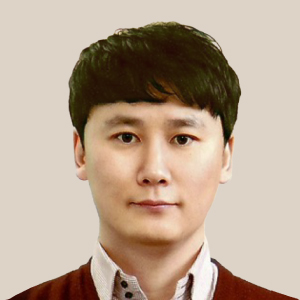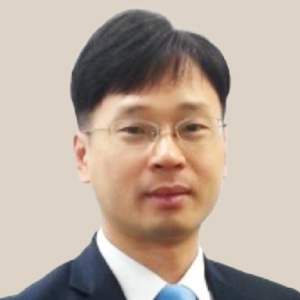
Track 1A
(Software-Defined Vehicles)09:10AM - 4:30PM
The software defined vehicles separates hardware from software, is updateable and upgradeable, autonomous, learning, always connected, interacts with its environment, and supports service-based business models. Track #1 include, but is not limited to, the following.
- - E/E Architecture: High-Performance Vehicle Computer and Zone Controller, Software Defined Networking (SDN) SDV OS, AUTOSAR, RTOS, Hypervisors and Virtualization
- - Cloud-native (CI/CD, Docker, Container) Cybersecurity - Vehicle to Cloud
- - OTA Updates Digital Twin

Vice President, Robert Bosch GmbH and Chairman of the digital.auto Initiative
- Speaker ㅣ 강사소개
-
Dirk Slama is Vice President at Robert Bosch GmbH and Chairman of the digital.auto initiative, where he drives the digital transformation of the automotive industry. His expertise spans Software-defined Vehicles (SDV), AI, DevOps, E/E architectures, and continuous homologation. A recognized leader in SDV innovation, Dirk actively collaborates with major standards and open-source communities, including COVESA and Eclipse SDV. As Conference Chair of Bosch ConnectedWorld, Dirk helps shape the Bosch digital ecosystem. He also serves as Director of the AIoT Lab at the Ferdinand-Steinbeis-Institute, where he holds a full professorship. Previously, as Steering Committee Chairman of the Industrial Internet Consortium (IIC), he contributed to building one of the leading ecosystems for the Industrial Internet. With over 25 years of experience in large-scale IT projects and distributed systems, Dirk has worked with major global players including Audi, Daimler, Lufthansa Systems, Boeing, AT&T, and NTT DoCoMo. His deep international project experience underpins his thought leadership in SDV and AIoT innovation. Dirk is a frequent keynote speaker and co-author of five widely read books, including “The Software-Defined Vehicle” (O’Reilly). His academic credentials include an MBA from IMD Lausanne, a PhD in Information Systems, and a Diploma in Computer Science (equivalent to an MSc) from TU Berlin.
디르크 슬래마는 로버트 보쉬의 부사장이자 digital.auto 이니셔티브의 의장으로, 자동차 산업의 디지털 전환을 이끌고 있다. 그의 전문 분야는 소프트웨어 정의 차량(SDV), 인공지능(AI), 데브옵스(DevOps), 전기/전자(E/E) 아키텍처, 그리고 지속적 형식승인(homologation)에 이르며, SDV 혁신 분야에서 인정받는 리더다. 그는 COVESA와 Eclipse SDV를 포함한 주요 표준 및 오픈소스 커뮤니티와도 활발히 협업하고 있다. 슬래마 부사장은 ‘Bosch ConnectedWorld’의 컨퍼런스 의장으로서 보쉬의 디지털 생태계를 형성하는 데 기여하고 있으며, 페르디난트-슈타인바이스 연구소(Ferdinand-Steinbeis-Institute) 내 AIoT 연구소 소장으로 재직 중이며, 전임 교수직도 겸하고 있다. 이전에는 산업 인터넷 컨소시엄(IIC)의 운영위원회 의장을 역임하며 산업 인터넷을 위한 선도적인 생태계 구축에 기여했다. 그는 25년 이상 대규모 IT 프로젝트와 분산 시스템 분야에서 경력을 쌓아왔으며, 아우디(Audi), 다임러(Daimler), 루프트한자 시스템(Lufthansa Systems), 보잉(Boeing), AT&T, NTT 도코모(NTT DoCoMo) 등 글로벌 대기업들과 협업해 왔다. 그의 풍부한 국제 프로젝트 경험은 SDV 및 AIoT 혁신 분야에서의 리더십을 뒷받침한다. 디르크 슬라마는 주요 컨퍼런스의 기조연설자이자 다섯 권의 널리 읽히는 책의 공동저자이며, 그중에는 O’Reilly에서 출간된 ‘The Software-Defined Vehicle’도 포함돼 있다. 그는 IMD 로잔에서 MBA를, 정보시스템 분야 박사학위(PhD)를, 그리고 베를린 공과대학교(TU Berlin)에서 컴퓨터공학 디플로마(석사에 해당)를 취득했다.
- Abstract ㅣ 초록정보
-
As the automotive industry transitions from Software-defined Vehicles (SDVs) to AI-defined vehicles, we are entering a phase of profound transformation—one where AI becomes the primary driver of innovation. While the SDV paradigm has enabled modularity, scalability, and rapid iteration, it is AI—particularly Agentic AI—that will redefine both the vehicle experience and the development process itself. In this keynote, we explore how Agentic AI will re-shape in-vehicle interactions, evolving from static HMI designs to dynamic, context-aware copilots that continuously learn and adapt to the driver, environment, and system state. This shift opens the door to truly intelligent mobility experiences—highly personalized, proactive, and seamlessly integrated across digital ecosystems. At the same time, AI is poised to transform how vehicles are designed, built, and approved. With tools like ./pulse, we begin to see how process-oriented AI can support intelligent requirements analysis, change impact assessment, and even continuous homologation. This is not just automation—it’s augmentation of engineering workflows by AI agents that reason, learn, and collaborate. Crucially, the future of AI in mobility isn’t defined by a single killer app. It’s a long tail of incremental, AI-driven enhancements—from smart diagnostics to adaptive performance tuning—that together redefine what a vehicle can be and how we bring it to market. This keynote provides a forward-looking view into this AI-defined future—and the practical steps the industry must take to get there.
자동차 산업이 소프트웨어 정의 차량(SDV)에서 AI 정의 차량(AI-defined vehicle)으로 전환함에 따라, 우리는 혁신의 중심축이 AI로 옮겨가는 깊은 변혁의 시대로 접어들고 있다. SDV 패러다임이 모듈화, 확장성, 빠른 반복 개발을 가능하게 했다면, 이제는 AI—특히 Agentic AI(에이전트형 AI)가 차량 경험과 개발 프로세스 자체를 근본적으로 재정의할 것이다. 이 기조연설에서는 Agentic AI가 차량 내 상호작용을 어떻게 재구성할지를 다룬다. 기존의 정적인 HMI(휴먼-머신 인터페이스) 디자인에서 벗어나, 운전자와 환경, 시스템 상태에 따라 지속적으로 학습하고 적응하는 동적이고 상황 인식이 가능한 '코파일럿'으로 진화하게 될 것이다. 이는 고도로 개인화되고, 능동적이며, 디지털 생태계 전반에 걸쳐 매끄럽게 통합된 진정한 지능형 모빌리티 경험의 문을 연다. 동시에 AI는 차량의 설계, 제작, 인증 방식도 근본적으로 바꾸고 있다. ./pulse와 같은 도구를 통해 우리는 프로세스 지향 AI가 요구사항 분석, 변경 영향 평가, 심지어는 지속적 형식승인(continuous homologation)까지 지원할 수 있음을 확인하고 있다. 이는 단순한 자동화를 넘어, AI 에이전트가 추론하고 학습하며 협업하는 방식으로 엔지니어링 워크플로를 ‘증강’하는 것이다. 무엇보다 중요한 점은, 모빌리티 분야에서의 AI의 미래가 단 하나의 ‘킬러 앱’에 의해 정의되지 않는다는 것이다. 스마트 진단부터 적응형 성능 조율에 이르기까지, 수많은 점진적이고 AI 기반의 기능 향상들이 함께 모여 차량의 본질과 시장 출시에 이르는 방식을 근본적으로 변화시키게 될 것이다. 이 기조연설은 AI가 정의하는 미래 모빌리티의 비전을 제시하며, 그 비전을 실현하기 위해 업계가 지금부터 취해야 할 실질적인 단계들을 조망한다.

CEO, CTO & Co-Founder, TTTech Auto
- Speaker ㅣ 강사소개
-
Dr. Stefan Poledna is Co-Founder and a member of the executive board at TTTech Auto. As Chief Technology Officer he is responsible for the company’s technology roadmap, all scientific topics and new business creation. He has 30 years of international industry experience in automotive systems and software development. He has authored and co-authored several patents and publications. He received his M.Sc. and Ph.D. degree in computer science with distinction from Vienna University of Technology, where he also lectures on Dependable Computer Systems
슈테판 폴드나 박사는 TTTech Auto의 공동 창립자, 이사회 임원이자, CEO, 최고기술책임자(CTO)로 재직 중이다. 그는 회사의 기술 로드맵, 과학 관련 전반적인 주제, 그리고 신규 비즈니스 창출을 총괄하고 있다. 폴드나 박사는 자동차 시스템 및 소프트웨어 개발 분야에서 30년에 걸친 국제적인 산업 경험을 보유하고 있다. 그는 여러 특허와 논문의 저자 및 공동 저자로 활동해왔으며, 빈 공과대학교(Vienna University of Technology)에서 컴퓨터공학 석사(M.Sc.) 및 박사(Ph.D.) 학위를 모두 우등으로 취득했다. 현재는 해당 대학에서 신뢰성 높은 컴퓨터 시스템(Dependable Computer Systems)을 주제로 강의도 진행하고 있다.
- Abstract ㅣ 초록정보
-
SDV Fail-operational architecture and its key requirements
- SAE J3016: Levels of automated driving
- What is the required safety of an Autonomous Driving System?
- E2E AI to the rescue! But can it really solve the issue?
- Change of perspective: What does it mean to move from Level 2 to Level 3?
- Proposed Architecture of an AD L3 System

Chief Executive Officer (CEO), SDVerse
- Speaker ㅣ 강사소개
-
Prashant Gulati is the CEO of SDVerse, the automotive industry's first dedicated software marketplace, founded by General Motors, Magna, and Wipro to accelerate the transition to software-defined vehicles (SDVs). With over two decades of experience across software, artificial intelligence, and mobility innovation, Prashant brings strategic vision and technological insight to the complex challenges and transformative opportunities defining the automotive future. Under his leadership, SDVerse has become a pioneering force, helping OEMs, Tier 1s, and software providers accelerate SDV development through smarter development, sourcing, and ecosystem collaboration. Prior to SDVerse, he built a diverse leadership portfolio across engineering, product, strategy, sales, and fundraising, successfully scaling technology ventures across international markets. Recognized as a Top EV Industry Power Player by Business Insider and a Top AI Voice by LinkedIn, Prashant is passionate about applying technology to address complex industry needs and advance innovation in mobility. He holds a degree in Computer Science and an MBA, and is based in the United States. Prashant drives strategic transformation across the global automotive ecosystem, pioneering the shift toward software-defined transportation.
프라샨트 굴라티는 SDVerse의 CEO로, 이 조직은 제너럴 모터스(GM), 마그나(Magna), 위프로(Wipro)가 설립한 자동차 업계 최초의 전용 소프트웨어 마켓플레이스다. SDVerse는 SDV로의 전환을 가속화하기 위해 만들어졌다. 프라샨트는 소프트웨어, 인공지능(AI), 모빌리티 혁신 분야에서 20년 이상의 경험을 바탕으로, 자동차 산업의 복잡한 과제와 변화의 기회에 전략적 비전과 기술적 통찰을 더하고 있다. 그의 리더십 아래 SDVerse는 OEM, 티어1, 소프트웨어 공급업체들이 보다 스마트한 개발, 소싱, 생태계 협업을 통해 SDV 개발을 가속화할 수 있도록 지원하는 선도적 플랫폼으로 자리매김했다. SDVerse 이전에는 엔지니어링, 제품, 전략, 영업, 투자 유치 등 다양한 분야에서 리더십 경험을 쌓으며 여러 기술 벤처를 글로벌 시장에서 성공적으로 성장시켰다. 프라샨트는 Business Insider가 선정한 ‘전기차 업계 파워플레이어’이자 LinkedIn이 선정한 ‘주목할 만한 AI 전문가’로 인정받았으며, 첨단 기술을 통해 업계의 복잡한 요구를 해결하고 모빌리티 혁신을 촉진하는 데 열정을 가지고 있다. 컴퓨터공학 학위와 MBA를 보유하고 있으며, 현재 미국에 거주 중이다. 그는 소프트웨어 정의 운송 시대를 주도하며 글로벌 자동차 생태계의 전략적 전환을 이끌고 있다.
- Abstract ㅣ 초록정보
-
As vehicles shift from mechanical constructs to software-defined ecosystems, the real challenge isn’t just technical, it's systemic. Success in the SDV era demands new technology yes, but equally importantly new forms of collaboration, intelligent software sourcing, and agile ecosystems that break silos. This keynote explores global trends, Korea’s strong leadership opportunity, and why embracing collaborative models is key to scaling innovation. We'll also discuss with real-world examples, how SDVerse, as the automotive industry's first dedicated B2B software marketplace, is helping power this transition - accelerating discovery, interoperability, and speed to market.
차량이 기계적 구조에서 소프트웨어 정의 생태계로 전환됨에 따라, 진정한 도전 과제는 단지 기술적인 것이 아니라 시스템 전반에 걸쳐 있다는 점이다. SDV 시대의 성공은 새로운 기술뿐 아니라, 협업 방식의 혁신, 지능적인 소프트웨어 소싱, 그리고 사일로를 허무는 민첩한 생태계 구축을 요구한다. 이 기조연설에서는 글로벌 트렌드와 함께 한국이 가진 강력한 리더십 기회, 그리고 혁신을 확장하기 위해 협업 모델을 수용하는 것이 왜 중요한지를 다룬다. 또한, 실제 사례를 통해 자동차 산업 최초의 전용 B2B 소프트웨어 마켓플레이스인 SDVerse가 어떻게 이 전환을 가속화하고 있는지 — 즉, 소프트웨어의 탐색, 상호운용성 확보, 시장 출시 속도를 높이는 데 어떤 역할을 하고 있는지를 소개한다.

Manager, Pre-Sales, TTTech Auto
- Speaker ㅣ 강사소개
-
Dr. Shashank Gaur (Ph.D., M.S., B.E.) is currently Manager of Pre-Sales at TTTech Auto, the Austrian technology company providing safe software and hardware platforms for automated driving. Shashank and his team are responsible for understanding customer problems early on and finding solutions using the product and service portfolio of TTTech Auto. In past roles, Shashank actively contributed to topics such as Communications and Scheduling in various domains including automotive. Before Industry, Shashank was working in Real-Time Systems technical community where he did research in Wireless Sensor Networks. His PhD thesis was focused on Context Aware Sensor Networks, providing solutions for resource management and adaptation policies for resource constrained embedded systems. Before that, Shashank worked with Ansaldo STS (now Hitachi Rail) on developing Safety Critical Systems with ADA programming language. In 2011, Shashank worked at Infineon technologies on software solutions related to IPXACT, also known as IEEE 1685. From 2010 to 2013, Shashank was an active contributor to GNURadio and Software Defined Radio community, which was the focus of his master's thesis. Shashank has been active in the Real-Time Systems Community at multiple conferences such as ICC, GLOBECOM, RTSS, RTAS, IPSN, ECRTS, WFCS, etc. In addition, Shashank has been an active IEEE volunteer since 2007 in various leadership positions.
- Abstract ㅣ 초록정보
-
What is Data-centric communication?
How does Data-centric communication differ from Service-Oriented communication?
ZettaAuto solution introduction

Senior Director, Global Advisor Automotive, PTC
- Speaker ㅣ 강사소개
-
Michele Del Mondo began his career in 1994 at the Steinbeis Transfer Center in Karlsruhe after studying mechanical engineering. While working he added an additional Master of Economic Science to his professional education. In 1997, he joined Webasto SE, a global acting automotive supplier, and led the implementation of a company-wide PLM system. Later, as Director Sales, he took over responsibility for global sales for the Mercedes Car Group. He has been with PTC since 2011 and is now Senior Director – Global Advisor Automotive for the global PTC Automotive business.
- Abstract ㅣ 초록정보
-
The shift to SDV and autonomous driving requires new concepts for electronic systems and the implementation of software-driven functions. To manage the increased complexity and to be compliant with regulations and safety standards like ISO 26262, traceability has become more important than ever in the automotive development. The presentation outlines the necessity of traceability in SDV development as well as how traceability can be easily achieved within an existing tool landscape.

Global Automotive Business Development Manager, Real-Time Innovations (RTI)
- Speaker ㅣ 강사소개
-
Tobias Fieger is the Global Business Development Manager of Automotive at Real-Time Innovations (RTI), the largest software framework company for autonomous systems, where he establishes relationships with customers and partners for RTI’s fast-growing global automotive business and for RTI Connext Drive. He has more than 14 years of sales and business development experience, working extensively with global automotive and industrial industries. Tobias holds a MSc in Electrical Engineering and Information Technology from the Karlsruhe Institute of Technology KIT.
- Abstract ㅣ 초록정보
-
Join RTI at this year’s premier automotive event to explore the transformative potential of using Data Distribution Service (DDS) for real-time, interoperable and advanced vehicle communication.
This session will focus on RTI Connext Drive, an advanced communication software that allows developers to focus on application logic without being mired in hardware-specific complexities. Based on the DDS standard, Connext Drive enables asynchronous communication among applications, independent of their hardware platforms, ensuring seamless integration across diverse components and systems.
This flexible software framework allows for fine-grained control to optimize data delivery, reliability, latency, and resource usage. By abstracting applications from underlying hardware changes, it simplifies system integration, reduces downtime, and guards against disruptions when network topologies or configurations evolve.
Attendees will learn how Connext Drive maintains robust communication even in the face of hardware failures, safeguarding system functionality. The session will review real-world use cases that illustrate how automotive OEMs and Tier 1 suppliers leverage Connext Drive to accelerate development, optimize resource allocation and minimize risks. Whether your goal is to implement advanced driver assistance systems or build future-ready architectures, Connext Drive provides the trusted, flexible software to unlock superior reliability and performance.

Lead Engineer, Ansys Korea
- Speaker ㅣ 강사소개
-
송민 리드 엔지니어는 한양대학교 정보경영공학과에서 학사 및 석사 과정을 마치고, 지난 15 년간 자동차 산업 분야에서 품질과 신뢰성 향상을 위한 시스템 설계 및 개발 업무를 수행해왔다. 씨엔비스(2011~2021)와 앤시스 코리아에서 근무하며 ASPICE 및 기능안전 분야 컨설팅과 더불어, medini 도구를 활용한 기술 지원을 통해 고객사의 제품 개발을 효과적으로 지원해왔다. 특히, 2020년에는 번역서 『자동차 기능 안전 기본 가이드』를 출간하여 업계 지식 확산에도 기여한 바 있다.
- Abstract ㅣ 초록정보
-
ISO 21434 표준에 부합하는 사이버보안 분석에 대해 예시와 함께 소개한다.
- 사이버보안 프로젝트의 시작과 설정
- 사이버보안 프로세스 정의
- Item 정의와 사이버보안 분석
- Vunlabaility Analysis, Attack tree analysis 소개
- TARA 분석에 따른 VARA 자동 생성 소개(Vunlabaility Analysis Risk Assessment)

Manager, AVL Korea
- Speaker ㅣ 강사소개
-
임송은 매니저는 국민대학교에서 자동차공학 학사 학위를 취득하고, 독일 Technische Hochschule Deggendorf에서 기계공학을 전공했다. 이후 ㈜오성사 자동차사업부에서 연구원으로 근무하며 실무 경험을 쌓았고, 현재는 한국AVL에서 AST & ADAS 애플리케이션 엔지니어로 근무하고 있다. 또한, 현재 연세대학교 컴퓨터소프트웨어학과 석사과정을 밟고 있다.
- Abstract ㅣ 초록정보
-
SDV(Software Defined Vehicle)의 부상은 차량 개발 패러다임을 하드웨어 중심에서 소프트웨어 중심으로 전환시키고 있다. 이를 실현하기 위해서는 차량 내 다양한 시스템과 제어기, 센서, HMI, 파워트레인 등의 기능을 통합하고, 이기종 모델 간 상호작용을 정밀하게 검증할 수 있는 플랫폼이 요구된다. 본 발표에서는 이러한 SDV 구현을 위한 핵심 기반으로 AVL의 통합 시뮬레이션 플랫폼인 Model.CONNECT™를 소개한다. AVL Model.CONNECT™는 다양한 시뮬레이션 도구 간의 Co-simulation을 지원하며, AVL의 독자적인 인터페이스를 통해 AVL 툴뿐만 아니라 타사 툴의 제어, 기계, 전기, 통신 등 이기종 도메인 모델도 별도의 변환 없이 병렬로 실행할 수 있다. 특히 클라우드 환경에서의 유연한 구성과 확장성, 대규모 시나리오의 동시 실행을 통해 SDV 개발 속도와 품질을 혁신적으로 향상시킨다. 본 발표에서는 Model.CONNECT™의 기술적 아키텍처, 병렬 실행 프레임워크, 클라우드 기반 협업 환경 구축 사례 등을 중심으로, SDV 개발 과정에서의 실질적 활용 방안과 이점에 대해 다룬다.

Head of Network Solution Division, Vector Korea
- Speaker ㅣ 강사소개
-
Kiwook Shin is the local product line manager of Network & Test Solution at Vector Korea, and received a PhD degree in the research area of software test automation and optimization. He is dedicated to ensuring software quality through SIL and HIL validation using virtual ECUs for early defect detection and is also actively engaged in optimizing software verification processes within CI/CD environments.
Vector Korea의 차량 통신 솔루션 사업부의 사업부장으로, 테스트 자동화 및 최적화와 관련된 연구로 박사 학위 및 ISTQB AL 자격을 보유하고 있다. SW 조기 결함 식별을 위해 가상 ECU를 활용한 SIL 및 HIL 검증으로 SW 품질을 보장하는 데 주력하고 있으며, 지속적인 통합/배포(CI/CD) 환경에서의 소프트웨어 검증 프로세스를 최적화하는 데 중점을 두고 활동하고 있다.
- Abstract ㅣ 초록정보
-
In recent automotive development processes, the Shift-Left testing strategy has become increasingly important to enhance quality and shorten development cycles. This presentation introduces effective methods for linking and optimizing tests from the Software-in-the-Loop (SIL) stage to the Hardware-in-the-Loop (HIL) stage. By identifying and resolving defects early in the development process, overall costs and time can be significantly reduced. Furthermore, we share practical applications and expected benefits through case studies involving test automation, virtualization technologies, and toolchain integration. This session will provide valuable insights for engineers and managers aiming to improve the quality and efficiency of their development processes.
최근 자동차 개발 프로세스에서는 품질 향상과 개발 기간 단축을 위해 시프트-레프트(Shift-Left) 테스트 전략이 중요해지고 있다. 본 발표에서는 소프트웨어 인 더 루프(Software-in-the loop, SIL) 단계부터 하드웨어 인 더 루프(Hardware-in-the-Loop, HIL) 단계까지 테스트를 효과적으로 연계하고 최적화하는 방법을 소개한다. 이를 통해 초기 단계에서 결함을 발견하고 수정하여 전체 개발 비용과 시간을 절감할 수 있다. 또한, 테스트 자동화, 가상화 기술, 툴 체인 통합 사례를 통해 실제 프로젝트에서의 적용 방법과 기대 효과를 공유한다. 본 세션은 개발 프로세스의 품질과 효율성을 높이고자 하는 엔지니어와 관리자에게 유용한 인사이트를 제공할 것이다.
Track 1B
(Software-Defined Vehicles)09:10AM - 4:30PM
The software defined vehicles separates hardware from software, is updateable and upgradeable, autonomous, learning, always connected, interacts with its environment, and supports service-based business models. Track #1 include, but is not limited to, the following.
- - E/E Architecture: High-Performance Vehicle Computer and Zone Controller, Software Defined Networking (SDN) SDV OS, AUTOSAR, RTOS, Hypervisors and Virtualization
- - Cloud-native (CI/CD, Docker, Container) Cybersecurity - Vehicle to Cloud
- - OTA Updates Digital Twin

Vice President, Robert Bosch GmbH and Chairman of the digital.auto Initiative
- Speaker ㅣ 강사소개
-
Dirk Slama is Vice President at Robert Bosch GmbH and Chairman of the digital.auto initiative, where he drives the digital transformation of the automotive industry. His expertise spans Software-defined Vehicles (SDV), AI, DevOps, E/E architectures, and continuous homologation. A recognized leader in SDV innovation, Dirk actively collaborates with major standards and open-source communities, including COVESA and Eclipse SDV. As Conference Chair of Bosch ConnectedWorld, Dirk helps shape the Bosch digital ecosystem. He also serves as Director of the AIoT Lab at the Ferdinand-Steinbeis-Institute, where he holds a full professorship. Previously, as Steering Committee Chairman of the Industrial Internet Consortium (IIC), he contributed to building one of the leading ecosystems for the Industrial Internet. With over 25 years of experience in large-scale IT projects and distributed systems, Dirk has worked with major global players including Audi, Daimler, Lufthansa Systems, Boeing, AT&T, and NTT DoCoMo. His deep international project experience underpins his thought leadership in SDV and AIoT innovation. Dirk is a frequent keynote speaker and co-author of five widely read books, including “The Software-Defined Vehicle” (O’Reilly). His academic credentials include an MBA from IMD Lausanne, a PhD in Information Systems, and a Diploma in Computer Science (equivalent to an MSc) from TU Berlin.
디르크 슬래마는 로버트 보쉬의 부사장이자 digital.auto 이니셔티브의 의장으로, 자동차 산업의 디지털 전환을 이끌고 있다. 그의 전문 분야는 소프트웨어 정의 차량(SDV), 인공지능(AI), 데브옵스(DevOps), 전기/전자(E/E) 아키텍처, 그리고 지속적 형식승인(homologation)에 이르며, SDV 혁신 분야에서 인정받는 리더다. 그는 COVESA와 Eclipse SDV를 포함한 주요 표준 및 오픈소스 커뮤니티와도 활발히 협업하고 있다. 슬래마 부사장은 ‘Bosch ConnectedWorld’의 컨퍼런스 의장으로서 보쉬의 디지털 생태계를 형성하는 데 기여하고 있으며, 페르디난트-슈타인바이스 연구소(Ferdinand-Steinbeis-Institute) 내 AIoT 연구소 소장으로 재직 중이며, 전임 교수직도 겸하고 있다. 이전에는 산업 인터넷 컨소시엄(IIC)의 운영위원회 의장을 역임하며 산업 인터넷을 위한 선도적인 생태계 구축에 기여했다. 그는 25년 이상 대규모 IT 프로젝트와 분산 시스템 분야에서 경력을 쌓아왔으며, 아우디(Audi), 다임러(Daimler), 루프트한자 시스템(Lufthansa Systems), 보잉(Boeing), AT&T, NTT 도코모(NTT DoCoMo) 등 글로벌 대기업들과 협업해 왔다. 그의 풍부한 국제 프로젝트 경험은 SDV 및 AIoT 혁신 분야에서의 리더십을 뒷받침한다. 디르크 슬라마는 주요 컨퍼런스의 기조연설자이자 다섯 권의 널리 읽히는 책의 공동저자이며, 그중에는 O’Reilly에서 출간된 ‘The Software-Defined Vehicle’도 포함돼 있다. 그는 IMD 로잔에서 MBA를, 정보시스템 분야 박사학위(PhD)를, 그리고 베를린 공과대학교(TU Berlin)에서 컴퓨터공학 디플로마(석사에 해당)를 취득했다.
- Abstract ㅣ 초록정보
-
As the automotive industry transitions from Software-defined Vehicles (SDVs) to AI-defined vehicles, we are entering a phase of profound transformation—one where AI becomes the primary driver of innovation. While the SDV paradigm has enabled modularity, scalability, and rapid iteration, it is AI—particularly Agentic AI—that will redefine both the vehicle experience and the development process itself. In this keynote, we explore how Agentic AI will re-shape in-vehicle interactions, evolving from static HMI designs to dynamic, context-aware copilots that continuously learn and adapt to the driver, environment, and system state. This shift opens the door to truly intelligent mobility experiences—highly personalized, proactive, and seamlessly integrated across digital ecosystems. At the same time, AI is poised to transform how vehicles are designed, built, and approved. With tools like ./pulse, we begin to see how process-oriented AI can support intelligent requirements analysis, change impact assessment, and even continuous homologation. This is not just automation—it’s augmentation of engineering workflows by AI agents that reason, learn, and collaborate. Crucially, the future of AI in mobility isn’t defined by a single killer app. It’s a long tail of incremental, AI-driven enhancements—from smart diagnostics to adaptive performance tuning—that together redefine what a vehicle can be and how we bring it to market. This keynote provides a forward-looking view into this AI-defined future—and the practical steps the industry must take to get there.
자동차 산업이 소프트웨어 정의 차량(SDV)에서 AI 정의 차량(AI-defined vehicle)으로 전환함에 따라, 우리는 혁신의 중심축이 AI로 옮겨가는 깊은 변혁의 시대로 접어들고 있다. SDV 패러다임이 모듈화, 확장성, 빠른 반복 개발을 가능하게 했다면, 이제는 AI—특히 Agentic AI(에이전트형 AI)가 차량 경험과 개발 프로세스 자체를 근본적으로 재정의할 것이다. 이 기조연설에서는 Agentic AI가 차량 내 상호작용을 어떻게 재구성할지를 다룬다. 기존의 정적인 HMI(휴먼-머신 인터페이스) 디자인에서 벗어나, 운전자와 환경, 시스템 상태에 따라 지속적으로 학습하고 적응하는 동적이고 상황 인식이 가능한 '코파일럿'으로 진화하게 될 것이다. 이는 고도로 개인화되고, 능동적이며, 디지털 생태계 전반에 걸쳐 매끄럽게 통합된 진정한 지능형 모빌리티 경험의 문을 연다. 동시에 AI는 차량의 설계, 제작, 인증 방식도 근본적으로 바꾸고 있다. ./pulse와 같은 도구를 통해 우리는 프로세스 지향 AI가 요구사항 분석, 변경 영향 평가, 심지어는 지속적 형식승인(continuous homologation)까지 지원할 수 있음을 확인하고 있다. 이는 단순한 자동화를 넘어, AI 에이전트가 추론하고 학습하며 협업하는 방식으로 엔지니어링 워크플로를 ‘증강’하는 것이다. 무엇보다 중요한 점은, 모빌리티 분야에서의 AI의 미래가 단 하나의 ‘킬러 앱’에 의해 정의되지 않는다는 것이다. 스마트 진단부터 적응형 성능 조율에 이르기까지, 수많은 점진적이고 AI 기반의 기능 향상들이 함께 모여 차량의 본질과 시장 출시에 이르는 방식을 근본적으로 변화시키게 될 것이다. 이 기조연설은 AI가 정의하는 미래 모빌리티의 비전을 제시하며, 그 비전을 실현하기 위해 업계가 지금부터 취해야 할 실질적인 단계들을 조망한다.

CEO, CTO & Co-Founder, TTTech Auto
- Speaker ㅣ 강사소개
-
Dr. Stefan Poledna is Co-Founder and a member of the executive board at TTTech Auto. As Chief Technology Officer he is responsible for the company’s technology roadmap, all scientific topics and new business creation. He has 30 years of international industry experience in automotive systems and software development. He has authored and co-authored several patents and publications. He received his M.Sc. and Ph.D. degree in computer science with distinction from Vienna University of Technology, where he also lectures on Dependable Computer Systems
슈테판 폴드나 박사는 TTTech Auto의 공동 창립자, 이사회 임원이자, CEO, 최고기술책임자(CTO)로 재직 중이다. 그는 회사의 기술 로드맵, 과학 관련 전반적인 주제, 그리고 신규 비즈니스 창출을 총괄하고 있다. 폴드나 박사는 자동차 시스템 및 소프트웨어 개발 분야에서 30년에 걸친 국제적인 산업 경험을 보유하고 있다. 그는 여러 특허와 논문의 저자 및 공동 저자로 활동해왔으며, 빈 공과대학교(Vienna University of Technology)에서 컴퓨터공학 석사(M.Sc.) 및 박사(Ph.D.) 학위를 모두 우등으로 취득했다. 현재는 해당 대학에서 신뢰성 높은 컴퓨터 시스템(Dependable Computer Systems)을 주제로 강의도 진행하고 있다.
- Abstract ㅣ 초록정보
-
SDV Fail-operational architecture and its key requirements
- SAE J3016: Levels of automated driving
- What is the required safety of an Autonomous Driving System?
- E2E AI to the rescue! But can it really solve the issue?
- Change of perspective: What does it mean to move from Level 2 to Level 3?
- Proposed Architecture of an AD L3 System

Chief Executive Officer (CEO), SDVerse
- Speaker ㅣ 강사소개
-
Prashant Gulati is the CEO of SDVerse, the automotive industry's first dedicated software marketplace, founded by General Motors, Magna, and Wipro to accelerate the transition to software-defined vehicles (SDVs). With over two decades of experience across software, artificial intelligence, and mobility innovation, Prashant brings strategic vision and technological insight to the complex challenges and transformative opportunities defining the automotive future. Under his leadership, SDVerse has become a pioneering force, helping OEMs, Tier 1s, and software providers accelerate SDV development through smarter development, sourcing, and ecosystem collaboration. Prior to SDVerse, he built a diverse leadership portfolio across engineering, product, strategy, sales, and fundraising, successfully scaling technology ventures across international markets. Recognized as a Top EV Industry Power Player by Business Insider and a Top AI Voice by LinkedIn, Prashant is passionate about applying technology to address complex industry needs and advance innovation in mobility. He holds a degree in Computer Science and an MBA, and is based in the United States. Prashant drives strategic transformation across the global automotive ecosystem, pioneering the shift toward software-defined transportation.
프라샨트 굴라티는 SDVerse의 CEO로, 이 조직은 제너럴 모터스(GM), 마그나(Magna), 위프로(Wipro)가 설립한 자동차 업계 최초의 전용 소프트웨어 마켓플레이스다. SDVerse는 SDV로의 전환을 가속화하기 위해 만들어졌다. 프라샨트는 소프트웨어, 인공지능(AI), 모빌리티 혁신 분야에서 20년 이상의 경험을 바탕으로, 자동차 산업의 복잡한 과제와 변화의 기회에 전략적 비전과 기술적 통찰을 더하고 있다. 그의 리더십 아래 SDVerse는 OEM, 티어1, 소프트웨어 공급업체들이 보다 스마트한 개발, 소싱, 생태계 협업을 통해 SDV 개발을 가속화할 수 있도록 지원하는 선도적 플랫폼으로 자리매김했다. SDVerse 이전에는 엔지니어링, 제품, 전략, 영업, 투자 유치 등 다양한 분야에서 리더십 경험을 쌓으며 여러 기술 벤처를 글로벌 시장에서 성공적으로 성장시켰다. 프라샨트는 Business Insider가 선정한 ‘전기차 업계 파워플레이어’이자 LinkedIn이 선정한 ‘주목할 만한 AI 전문가’로 인정받았으며, 첨단 기술을 통해 업계의 복잡한 요구를 해결하고 모빌리티 혁신을 촉진하는 데 열정을 가지고 있다. 컴퓨터공학 학위와 MBA를 보유하고 있으며, 현재 미국에 거주 중이다. 그는 소프트웨어 정의 운송 시대를 주도하며 글로벌 자동차 생태계의 전략적 전환을 이끌고 있다.
- Abstract ㅣ 초록정보
-
As vehicles shift from mechanical constructs to software-defined ecosystems, the real challenge isn’t just technical, it's systemic. Success in the SDV era demands new technology yes, but equally importantly new forms of collaboration, intelligent software sourcing, and agile ecosystems that break silos. This keynote explores global trends, Korea’s strong leadership opportunity, and why embracing collaborative models is key to scaling innovation. We'll also discuss with real-world examples, how SDVerse, as the automotive industry's first dedicated B2B software marketplace, is helping power this transition - accelerating discovery, interoperability, and speed to market.
차량이 기계적 구조에서 소프트웨어 정의 생태계로 전환됨에 따라, 진정한 도전 과제는 단지 기술적인 것이 아니라 시스템 전반에 걸쳐 있다는 점이다. SDV 시대의 성공은 새로운 기술뿐 아니라, 협업 방식의 혁신, 지능적인 소프트웨어 소싱, 그리고 사일로를 허무는 민첩한 생태계 구축을 요구한다. 이 기조연설에서는 글로벌 트렌드와 함께 한국이 가진 강력한 리더십 기회, 그리고 혁신을 확장하기 위해 협업 모델을 수용하는 것이 왜 중요한지를 다룬다. 또한, 실제 사례를 통해 자동차 산업 최초의 전용 B2B 소프트웨어 마켓플레이스인 SDVerse가 어떻게 이 전환을 가속화하고 있는지 — 즉, 소프트웨어의 탐색, 상호운용성 확보, 시장 출시 속도를 높이는 데 어떤 역할을 하고 있는지를 소개한다.

Managing Director Korea, Elektrobit
- Speaker ㅣ 강사소개
-
조정우 대표이사는 2019년부터 일렉트로비트에서 Head of Customer Center, Head of Competency Center, APAC HPC Product & Solution Manager 등 다양한 역할을 수행하며 한국 비즈니스를 성공적으로 수주하는 데 핵심적인 역할을 하고 있다.
- Abstract ㅣ 초록정보
-
본 발표에서는 SAE 자율주행 레벨에서 착안한 ‘SDV 레벨’을 소개한다. SDV의 진화 단계에 따라 레벨 0에서 5까지 여섯 단계로 분류해 설명한다.
- SDV 레벨 개요
- SDV 레벨에 따른 E/E architecture와 하드웨어 분류
- SDV 레벨에 따른 software architecture 및 개발 방법론

Head of Department, FPT Automotive, FPT Corporation
- Speaker ㅣ 강사소개
-
Mr. Kim Jung Tae brings over 25 years of experience in the automotive industry, with a global career spanning the USA, Europe, Korea, and China. His expertise covers Software-Defined Vehicles (SDV), automotive electrification, and autonomous infrastructure—particularly in areas such as ADAS/AD systems, in-vehicle digital cockpits, and security solutions. He also specializes in Edge AI applications for vehicles, mobility, robotics, IoT, and connected intelligent transport systems (C-ITS).
- Abstract ㅣ 초록정보
-
As the automotive industry transitions toward software-defined vehicles (SDVs), traditional development methods are no longer sufficient to handle the growing complexity, faster release cycles, and demand for continuous updates. At the same time, advances in AI are reshaping how software is designed, developed, and validated across industries.
In response to this industry shift, FPT introduces SDVx—a next-gen AI-powered approach that transforms the entire vehicle software lifecycle. By integrating AI into every development phase, SDVx addresses key industry needs: improving productivity, reducing time and cost, ensuring software quality, enhancing safety, and optimizing systems like battery management. In this context, SDVx is not just relevant—it’s essential for the future of mobility

Industry Process Consultant, Dassault Systèmes
- Speaker ㅣ 강사소개
-
김기태 파트너는 다쏘시스템코리아 대기업사업부 자동차 산업군 기술 파트너로서 현대자동차 대상 프로세스 컨설팅을 담당하고 있으며, 전자·기계·건설장비 등 다양한 산업 분야에서 국내외 디지털 전환 프로젝트를 다수 주도한 경험을 보유하고 있다.
- Abstract ㅣ 초록정보
-
다쏘시스템의 SDV 통합 엔지니어링 패키지인 Smart, Safety & Connected는 북미 SDV 성공사례를 기반으로 개발되어, ‘SDV 전략 관리’, ‘Feature 중심 개발 체계’, ‘시스템 아키텍처 기반 복잡성 해소’ 등 다양한 SDV 개발 이슈의 해결책을 제시한다. 이 발표에서는 Smart, Safety & Connected 패키지를 바탕으로 하드웨어와 소프트웨어가 디커플링된 환경에서도 디지털 연속성을 통해 SDV 개발 품질을 확보하는 방안을 소개한다.

CEO, FESCARO
- Speaker ㅣ 강사소개
-
홍석민 대표는 모빌리티 소프트웨어 솔루션 기업 ‘페스카로(FESCARO)’의 설립자로, 국내 스타트업 중 최초로 자동차 보안 솔루션 상용화에 성공했다. 컴퓨터공학과 출신 자동차 전장 개발자 1세대로서 현대케피코와 현대오트론에서 엔진제어기용 보안 모듈, 경제형 엔진제어기 튜닝 방지 보안 모듈을 국내 최초로 양산 개발한 이력이 있다.
이러한 전문성과 경험을 바탕으로 모빌리티 시장의 당면 과제를 해결하기 위한 선도적 기술 개발에 몰두하고 있다. 최근 시장에 선보인 SDV(소프트웨어 정의 차량)를 위한 차세대 사이버보안 운영관리 솔루션 ‘CSMS 포털’은 홍 대표 커리어의 집약체라는 평가를 받고 있다.
Seok-min Hong, the CEO and founder of FESCARO has pioneered automotive cybersecurity solutions in Korea by successfully commercializing in-house developed solutions. Before FESCARO, he made groundbreaking contributions to in-vehicle security at Hyundai Kefico and Hyundai Autron. This includes creating Korea's first engine controller security module and mass-producing anti-tuning security modules for economic engine controllers for the first time in the Korean market.
He continues to delve into pioneering technologies and solutions that address the most critical challenges in automotive cybersecurity. The CSMS Portal stands as the culmination of his career—a next-generation cybersecurity operations management solution purpose-built for software-defined vehicles (SDVs).
- Abstract ㅣ 초록정보
-
유럽에서 세계 최초 자동차 사이버보안 규제 시행 후 3년이 지난 지금, 국내외 완성차 제작사들은 입을 모아 말한다. "인증 획득은 결승선이 아닌, 시작에 불과했다." 일상적 운영이 본격화되자 관리 업무가 눈덩이처럼 불어나는 현실과 직면했다고 한다. 수백 명의 이해관계자와 유기적으로 연결된 복잡한 프로세스, 계속 늘어나는 신규 차종과 지속적인 보안 업데이트, 반복적 수작업으로 인한 휴먼 에러 가능성 등에 대한 솔루션이 시급하다.
페스카로는 이러한 문제를 원스톱으로 해결하는 자동차 사이버보안 특화 디지털전환(DX) 솔루션, 'CSMS 포털'을 개발했다. 축적된 전문 지식과 추상화 기반 데이터베이스 스키마를 통해, 차량 전체 수명주기에 걸쳐 매끄러운 엔드투엔드(end-to-end) 오케스트레이션을 실현하는 것이 특징이다. 본 발표에서는 CSMS 포털이 어떻게 사이버보안 역량과 운영 효율 혁신에 기여하는지, 기존의 DevSecOps 및 vSOC 솔루션과는 어떻게 차별화되는지 등을 살펴본다.
Three years after the introduction of UN Regulation 155, the world’s first automotive cybersecurity regulation, automakers have reached a consensus: 'Achieving certification wasn't the finish line—it was just the beginning.' Transitioning into daily operations, they have faced a snowballing set of cybersecurity management challenges:
- complex processes involving hundreds of stakeholders,
- an ever-growing lineup of new vehicle models and continuous security updates,
- and the mounting risk of human errors from repetitive manual tasks.
FESCARO's CSMS Portal is a comprehensive digital transformation (DX) solution, purpose-built to address these exact challenges in one place. Drawing on deep industry expertise and an abstraction-based database schema, it enables seamless, end-to-end orchestration across the entire vehicle lifecycle. In this presentation, we’ll demonstrate how the CSMS Portal elevates cybersecurity capabilities and operational efficiency, and how it stands apart from existing DevSecOps or vSOC solutions.

CSO, FESCARO
- Speaker ㅣ 강사소개
-
구성서 상무이사는 글로벌 제어기 제작사 휴맥스(HUMAX)에서 임베디드 시스템 소프트웨어를 20년 이상 개발했다. 주로 OS Hardening 과 같은 시스템 보안과 CAS(Conditional Access System), DRM(Data Rights Management) 등의 콘텐츠 보호 솔루션을 개발했다. 이후 2018년부터 자동차 전장에 집중했으며 현대·기아차 중국향 모델의 AVNT(Audio, Video, Navigation, Telematics) 소프트웨어 개발 프로젝트를 총괄하며 양산까지 성공적으로 이끌었다.
임베디드 시스템 구조에 대한 깊은 이해와 보안 기술 역량을 융합해 현재는 페스카로(FESCARO)에서 글로벌사업개발본부를 총괄, OEM과 Tier에 자동차 사이버보안 솔루션을 제공하고 있다
- Abstract ㅣ 초록정보
-
SDV시대, 차량의 지능화와 함께 소프트웨어 비중은 비약적으로 확대되고 있다. 소프트웨어가 많아지면 사이버보안 위협도 필연적으로 증가한다. 이에 유럽, 한국, 중국 등 주요국은 관련 법규를 제정·시행하고 있으며, OEM은 Tier에 사이버보안 요구사항을 구체화하고 있다. 그러나 리소스와 전문 인력이 제한적인 Tier에게는 사이버보안이 부담으로 작용할 수 있다.
본 발표에서는 Tier를 위한 사이버보안 로드맵을 제시한다. 보안 솔루션과 KMS에 대한 OEM 요구사항 분석부터, 구축 프로세스, 실제 도입 사례까지 실무 중심의 인사이트를 공유한다. 궁극적으로 Tier가 체계적인 사이버보안 대응 역량과 품질 안정성을 확보할 수 있도록, 실행 가능한 사이버보안 내재화 전략도 제시한다.

Solution Engineer, Qt Group
- Speaker ㅣ 강사소개
-
Currently working as a QA Solution Engineer at The Qt Company.
Worked at Vector Korea for about 6 years, responsible for product line code testing.
Worked at MathWorks Korea for about 7 years as a Pilot Project Engineer.
- Abstract ㅣ 초록정보
-
Achieving Bidirectional Traceability between Software Architecture and Source Code with Axivion To fulfill ASPICE SWE.2 and SWE.3 requirements for bidirectional traceability, Axivion analyzes the source code and enables verification against existing architectures such as EA models or imported AUTOSAR architectures.
By comparing the architecture with the actual source code, Axivion identifies mismatches and can automatically update the architecture to reflect the real implementation. This process ensures consistent alignment between architecture and code, allowing continuous and scalable architecture management—an essential foundation for Software-Defined Vehicles (SDVs).

Solution Engineer, Qt Group
- Speaker ㅣ 강사소개
-
Currently working as a QA Solution Engineer at The Qt Group.
Worked at MathWorks for about 4 years, as a Pilot/Consulting Engineer.
Worked at Hyundai Mobis for about 7 years as a Software Engineer.
- Abstract ㅣ 초록정보
-
Dynamic testing for a single AUTOSAR SWC on the target ECU is not easy due to the challenging test environment setup and the difficulty of generating test result reports. Since an AUTOSAR SWC is based on ANSI C/C++, it must produce the same results whether tested on the target ECU or on a host environment such as Windows or Linux. Qt provides AUTOSAR-based dependency generation features that make it easier to dynamically test AUTOSAR SWCs on host environments. It also allows easy integration with 3rd-party test frameworks such as Google Test, and offers Coco for measuring code coverage. In this session, we will demonstrate how to perform dynamic testing more easily using these features provided by Qt, with a simple example based on Classic AUTOSAR
Track 1C
(Software-Defined Vehicles)09:10AM - 3:00PM
The software defined vehicles separates hardware from software, is updateable and upgradeable, autonomous, learning, always connected, interacts with its environment, and supports service-based business models. Track #1 include, but is not limited to, the following.
- - E/E Architecture: High-Performance Vehicle Computer and Zone Controller, Software Defined Networking (SDN) SDV OS, AUTOSAR, RTOS, Hypervisors and Virtualization
- - Cloud-native (CI/CD, Docker, Container) Cybersecurity - Vehicle to Cloud
- - OTA Updates Digital Twin

Vice President, Robert Bosch GmbH and Chairman of the digital.auto Initiative
- Speaker ㅣ 강사소개
-
Dirk Slama is Vice President at Robert Bosch GmbH and Chairman of the digital.auto initiative, where he drives the digital transformation of the automotive industry. His expertise spans Software-defined Vehicles (SDV), AI, DevOps, E/E architectures, and continuous homologation. A recognized leader in SDV innovation, Dirk actively collaborates with major standards and open-source communities, including COVESA and Eclipse SDV. As Conference Chair of Bosch ConnectedWorld, Dirk helps shape the Bosch digital ecosystem. He also serves as Director of the AIoT Lab at the Ferdinand-Steinbeis-Institute, where he holds a full professorship. Previously, as Steering Committee Chairman of the Industrial Internet Consortium (IIC), he contributed to building one of the leading ecosystems for the Industrial Internet. With over 25 years of experience in large-scale IT projects and distributed systems, Dirk has worked with major global players including Audi, Daimler, Lufthansa Systems, Boeing, AT&T, and NTT DoCoMo. His deep international project experience underpins his thought leadership in SDV and AIoT innovation. Dirk is a frequent keynote speaker and co-author of five widely read books, including “The Software-Defined Vehicle” (O’Reilly). His academic credentials include an MBA from IMD Lausanne, a PhD in Information Systems, and a Diploma in Computer Science (equivalent to an MSc) from TU Berlin.
디르크 슬래마는 로버트 보쉬의 부사장이자 digital.auto 이니셔티브의 의장으로, 자동차 산업의 디지털 전환을 이끌고 있다. 그의 전문 분야는 소프트웨어 정의 차량(SDV), 인공지능(AI), 데브옵스(DevOps), 전기/전자(E/E) 아키텍처, 그리고 지속적 형식승인(homologation)에 이르며, SDV 혁신 분야에서 인정받는 리더다. 그는 COVESA와 Eclipse SDV를 포함한 주요 표준 및 오픈소스 커뮤니티와도 활발히 협업하고 있다. 슬래마 부사장은 ‘Bosch ConnectedWorld’의 컨퍼런스 의장으로서 보쉬의 디지털 생태계를 형성하는 데 기여하고 있으며, 페르디난트-슈타인바이스 연구소(Ferdinand-Steinbeis-Institute) 내 AIoT 연구소 소장으로 재직 중이며, 전임 교수직도 겸하고 있다. 이전에는 산업 인터넷 컨소시엄(IIC)의 운영위원회 의장을 역임하며 산업 인터넷을 위한 선도적인 생태계 구축에 기여했다. 그는 25년 이상 대규모 IT 프로젝트와 분산 시스템 분야에서 경력을 쌓아왔으며, 아우디(Audi), 다임러(Daimler), 루프트한자 시스템(Lufthansa Systems), 보잉(Boeing), AT&T, NTT 도코모(NTT DoCoMo) 등 글로벌 대기업들과 협업해 왔다. 그의 풍부한 국제 프로젝트 경험은 SDV 및 AIoT 혁신 분야에서의 리더십을 뒷받침한다. 디르크 슬라마는 주요 컨퍼런스의 기조연설자이자 다섯 권의 널리 읽히는 책의 공동저자이며, 그중에는 O’Reilly에서 출간된 ‘The Software-Defined Vehicle’도 포함돼 있다. 그는 IMD 로잔에서 MBA를, 정보시스템 분야 박사학위(PhD)를, 그리고 베를린 공과대학교(TU Berlin)에서 컴퓨터공학 디플로마(석사에 해당)를 취득했다.
- Abstract ㅣ 초록정보
-
As the automotive industry transitions from Software-defined Vehicles (SDVs) to AI-defined vehicles, we are entering a phase of profound transformation—one where AI becomes the primary driver of innovation. While the SDV paradigm has enabled modularity, scalability, and rapid iteration, it is AI—particularly Agentic AI—that will redefine both the vehicle experience and the development process itself. In this keynote, we explore how Agentic AI will re-shape in-vehicle interactions, evolving from static HMI designs to dynamic, context-aware copilots that continuously learn and adapt to the driver, environment, and system state. This shift opens the door to truly intelligent mobility experiences—highly personalized, proactive, and seamlessly integrated across digital ecosystems. At the same time, AI is poised to transform how vehicles are designed, built, and approved. With tools like ./pulse, we begin to see how process-oriented AI can support intelligent requirements analysis, change impact assessment, and even continuous homologation. This is not just automation—it’s augmentation of engineering workflows by AI agents that reason, learn, and collaborate. Crucially, the future of AI in mobility isn’t defined by a single killer app. It’s a long tail of incremental, AI-driven enhancements—from smart diagnostics to adaptive performance tuning—that together redefine what a vehicle can be and how we bring it to market. This keynote provides a forward-looking view into this AI-defined future—and the practical steps the industry must take to get there.
자동차 산업이 소프트웨어 정의 차량(SDV)에서 AI 정의 차량(AI-defined vehicle)으로 전환함에 따라, 우리는 혁신의 중심축이 AI로 옮겨가는 깊은 변혁의 시대로 접어들고 있다. SDV 패러다임이 모듈화, 확장성, 빠른 반복 개발을 가능하게 했다면, 이제는 AI—특히 Agentic AI(에이전트형 AI)가 차량 경험과 개발 프로세스 자체를 근본적으로 재정의할 것이다. 이 기조연설에서는 Agentic AI가 차량 내 상호작용을 어떻게 재구성할지를 다룬다. 기존의 정적인 HMI(휴먼-머신 인터페이스) 디자인에서 벗어나, 운전자와 환경, 시스템 상태에 따라 지속적으로 학습하고 적응하는 동적이고 상황 인식이 가능한 '코파일럿'으로 진화하게 될 것이다. 이는 고도로 개인화되고, 능동적이며, 디지털 생태계 전반에 걸쳐 매끄럽게 통합된 진정한 지능형 모빌리티 경험의 문을 연다. 동시에 AI는 차량의 설계, 제작, 인증 방식도 근본적으로 바꾸고 있다. ./pulse와 같은 도구를 통해 우리는 프로세스 지향 AI가 요구사항 분석, 변경 영향 평가, 심지어는 지속적 형식승인(continuous homologation)까지 지원할 수 있음을 확인하고 있다. 이는 단순한 자동화를 넘어, AI 에이전트가 추론하고 학습하며 협업하는 방식으로 엔지니어링 워크플로를 ‘증강’하는 것이다. 무엇보다 중요한 점은, 모빌리티 분야에서의 AI의 미래가 단 하나의 ‘킬러 앱’에 의해 정의되지 않는다는 것이다. 스마트 진단부터 적응형 성능 조율에 이르기까지, 수많은 점진적이고 AI 기반의 기능 향상들이 함께 모여 차량의 본질과 시장 출시에 이르는 방식을 근본적으로 변화시키게 될 것이다. 이 기조연설은 AI가 정의하는 미래 모빌리티의 비전을 제시하며, 그 비전을 실현하기 위해 업계가 지금부터 취해야 할 실질적인 단계들을 조망한다.

CEO, CTO & Co-Founder, TTTech Auto
- Speaker ㅣ 강사소개
-
Dr. Stefan Poledna is Co-Founder and a member of the executive board at TTTech Auto. As Chief Technology Officer he is responsible for the company’s technology roadmap, all scientific topics and new business creation. He has 30 years of international industry experience in automotive systems and software development. He has authored and co-authored several patents and publications. He received his M.Sc. and Ph.D. degree in computer science with distinction from Vienna University of Technology, where he also lectures on Dependable Computer Systems
슈테판 폴드나 박사는 TTTech Auto의 공동 창립자, 이사회 임원이자, CEO, 최고기술책임자(CTO)로 재직 중이다. 그는 회사의 기술 로드맵, 과학 관련 전반적인 주제, 그리고 신규 비즈니스 창출을 총괄하고 있다. 폴드나 박사는 자동차 시스템 및 소프트웨어 개발 분야에서 30년에 걸친 국제적인 산업 경험을 보유하고 있다. 그는 여러 특허와 논문의 저자 및 공동 저자로 활동해왔으며, 빈 공과대학교(Vienna University of Technology)에서 컴퓨터공학 석사(M.Sc.) 및 박사(Ph.D.) 학위를 모두 우등으로 취득했다. 현재는 해당 대학에서 신뢰성 높은 컴퓨터 시스템(Dependable Computer Systems)을 주제로 강의도 진행하고 있다.
- Abstract ㅣ 초록정보
-
SDV Fail-operational architecture and its key requirements
- SAE J3016: Levels of automated driving
- What is the required safety of an Autonomous Driving System?
- E2E AI to the rescue! But can it really solve the issue?
- Change of perspective: What does it mean to move from Level 2 to Level 3?
- Proposed Architecture of an AD L3 System

Chief Executive Officer (CEO), SDVerse
- Speaker ㅣ 강사소개
-
Prashant Gulati is the CEO of SDVerse, the automotive industry's first dedicated software marketplace, founded by General Motors, Magna, and Wipro to accelerate the transition to software-defined vehicles (SDVs). With over two decades of experience across software, artificial intelligence, and mobility innovation, Prashant brings strategic vision and technological insight to the complex challenges and transformative opportunities defining the automotive future. Under his leadership, SDVerse has become a pioneering force, helping OEMs, Tier 1s, and software providers accelerate SDV development through smarter development, sourcing, and ecosystem collaboration. Prior to SDVerse, he built a diverse leadership portfolio across engineering, product, strategy, sales, and fundraising, successfully scaling technology ventures across international markets. Recognized as a Top EV Industry Power Player by Business Insider and a Top AI Voice by LinkedIn, Prashant is passionate about applying technology to address complex industry needs and advance innovation in mobility. He holds a degree in Computer Science and an MBA, and is based in the United States. Prashant drives strategic transformation across the global automotive ecosystem, pioneering the shift toward software-defined transportation.
프라샨트 굴라티는 SDVerse의 CEO로, 이 조직은 제너럴 모터스(GM), 마그나(Magna), 위프로(Wipro)가 설립한 자동차 업계 최초의 전용 소프트웨어 마켓플레이스다. SDVerse는 SDV로의 전환을 가속화하기 위해 만들어졌다. 프라샨트는 소프트웨어, 인공지능(AI), 모빌리티 혁신 분야에서 20년 이상의 경험을 바탕으로, 자동차 산업의 복잡한 과제와 변화의 기회에 전략적 비전과 기술적 통찰을 더하고 있다. 그의 리더십 아래 SDVerse는 OEM, 티어1, 소프트웨어 공급업체들이 보다 스마트한 개발, 소싱, 생태계 협업을 통해 SDV 개발을 가속화할 수 있도록 지원하는 선도적 플랫폼으로 자리매김했다. SDVerse 이전에는 엔지니어링, 제품, 전략, 영업, 투자 유치 등 다양한 분야에서 리더십 경험을 쌓으며 여러 기술 벤처를 글로벌 시장에서 성공적으로 성장시켰다. 프라샨트는 Business Insider가 선정한 ‘전기차 업계 파워플레이어’이자 LinkedIn이 선정한 ‘주목할 만한 AI 전문가’로 인정받았으며, 첨단 기술을 통해 업계의 복잡한 요구를 해결하고 모빌리티 혁신을 촉진하는 데 열정을 가지고 있다. 컴퓨터공학 학위와 MBA를 보유하고 있으며, 현재 미국에 거주 중이다. 그는 소프트웨어 정의 운송 시대를 주도하며 글로벌 자동차 생태계의 전략적 전환을 이끌고 있다.
- Abstract ㅣ 초록정보
-
As vehicles shift from mechanical constructs to software-defined ecosystems, the real challenge isn’t just technical, it's systemic. Success in the SDV era demands new technology yes, but equally importantly new forms of collaboration, intelligent software sourcing, and agile ecosystems that break silos. This keynote explores global trends, Korea’s strong leadership opportunity, and why embracing collaborative models is key to scaling innovation. We'll also discuss with real-world examples, how SDVerse, as the automotive industry's first dedicated B2B software marketplace, is helping power this transition - accelerating discovery, interoperability, and speed to market.
차량이 기계적 구조에서 소프트웨어 정의 생태계로 전환됨에 따라, 진정한 도전 과제는 단지 기술적인 것이 아니라 시스템 전반에 걸쳐 있다는 점이다. SDV 시대의 성공은 새로운 기술뿐 아니라, 협업 방식의 혁신, 지능적인 소프트웨어 소싱, 그리고 사일로를 허무는 민첩한 생태계 구축을 요구한다. 이 기조연설에서는 글로벌 트렌드와 함께 한국이 가진 강력한 리더십 기회, 그리고 혁신을 확장하기 위해 협업 모델을 수용하는 것이 왜 중요한지를 다룬다. 또한, 실제 사례를 통해 자동차 산업 최초의 전용 B2B 소프트웨어 마켓플레이스인 SDVerse가 어떻게 이 전환을 가속화하고 있는지 — 즉, 소프트웨어의 탐색, 상호운용성 확보, 시장 출시 속도를 높이는 데 어떤 역할을 하고 있는지를 소개한다.

Director of Applications, Microchip Technology Inc.
- Speaker ㅣ 강사소개
-
Martin Miller, based in Germany, is the Director of Applications for the Networking and Connectivity Solutions business unit at Microchip Technology Inc.
With over 20 years of experience in the automotive industry specializing in network communication, Martin has contributed to several industry standards in IEEE, OPEN Alliance and others.
Martin holds a Diploma degree in Physics from Friedrich Alexander Universität Erlangen and started his career in satellite communication systems.
- Abstract ㅣ 초록정보
-
The Software-Defined Vehicle relies on a hardware architecture that reduces the complexity of the used communication mechanisms to a minimum. ASA connecting cameras to the ADAS unit, PCIe® technology inside high-performance computers connecting multiple CPUs, USB for the consumer connectivity and Ethernet as the backbone connecting edge nodes and zone controllers.
This presentation outlines how the elements fit together, creating a high bandwidth infrastructure to secure low latencies and fast startup while considering functional safety and security aspects.
A special focus will be on Remote Control, a new bridge technology allowing the development of sensors and actuators without MCU. Instead of having many ECUs running local software, this new concept concentrates the required software on the main vehicle computer. Applications such as interior and exterior lighting, audio for infotainment and hands-free will be shown. We will also go through the impact on the software structure of the main vehicle computer as well as the different implementation options.

Field Application Engineer, STMicroelectronics
- Speaker ㅣ 강사소개
-
STMicroelectronics 32-bit Automotive MCU Field Application Engineer
- Abstract ㅣ 초록정보
-
차량의 새로운 기능 추가와 업데이트는 더욱 중요해지고 있으며, 차량의 중심은 더욱 더 HW에서 SW로 나아가고 있다. 향후 차량의 끊임없는 발전과 혁신 관점에서, ST Stellar MCU는 차량의 성능 최적화, SW 복잡성 최소화, 에너지 효율화 측면을 중점으로 개발되었다. 본 발표에서는 SDV에 최적화된 MCU, Stellar를 소개한다.
Stellar MCU는 이뿐만이 아니라 자율주행의 핵심인 On-Device AI 연산이 가능한 최첨단 MCU로서 AI Model의 최적화부터 통합까지 자동으로 수행 가능한 종합 솔루션인 Edge-AI도 함께 소개한다.
As adding new features and updates to vehicles becomes increasingly important, the focus of vehicles is shifting from hardware to software. ST's Stellar MCUs are developed with a focus on optimizing vehicle performance, minimizing software complexity, and enhancing energy efficiency, providing an optimal solution for SDVs in the context of continuous automotive advancements and innovations.
Stellar MCUs also incorporate cutting-edge technology that enables On-Device AI computation. We will also introduce Edge-AI, a comprehensive solution for automatically optimizing and embedding AI models.

CEO & Founder, VWAY
- Speaker ㅣ 강사소개
-
- Ph.D. in Computer Engineering
- TUV SUD Automotive Functional Safety Expert
- TUV SGS Automotive Cybersecurity Expert
- CMMI Lead Appraiser
- A-SPICE Competent Assessor
- VWAY Co.,Ltd. Founder & CEO
- Abstract ㅣ 초록정보
-
Writing appropriate requirements in system and software development projects is a crucial factor for the success of the project. ASPICE, ISO 26262 and CMMI demand clarity and accuracy in requirements. However, reviewing requirements is a time-consuming and challenging task. In this presentation, we will examine the international standard of INCOSE requirements guidelines for requirements verification and introduce a solution for verifying requirements through AI by applying these guidelines

Application Engineer, TASKING Korea
- Speaker ㅣ 강사소개
-
성수현 매니저는 20여 년간 임베디드 소프트웨어 및 디버깅 분야에서 전문성을 쌓아온 FAE(Field Application Engineer)로, 현재 TASKING 한국지사에서 차량용 컴파일러 및 디버깅 솔루션에 대한 기술 컨설팅과 고객 지원을 담당하고 있다. 특히 폭넓은 현장 경험과 문제 해결 노하우를 바탕으로 자동차 산업의 OEM 및 Tier 1고객을 전담하며, 실제 개발 환경에서 발생하는 다양한 기술 이슈에 대한 맞춤형 기술 솔루션을 제공하고 있다.
- Debugger & Compiler, Application Engineer - TASKING Korea (2024~Present)
- Debugger & Testing, Application Engineer - MDS Tech (2004~2019)
- Abstract ㅣ 초록정보
-
SDV(Software-Defined Vehicle) 전환이 본격화되면서 차량 소프트웨어는 점점 더 복잡해지고 있으며, 이에 따라 디버깅 및 테스팅, 분석, 자동화에 대한 체계화가 개발 초기 단계부터 요구되고 있다. 본 발표에서는 먼저 AUTOSAR 기반 시스템에 대한 정밀한 프로파일링 기법을 통해 소프트웨어의 실행 성능과 타이밍 특성을 체계적으로 분석하고, 이를 통해 안정적인 ECU 동작의 기반을 어떻게 확보할 수 있는지 살펴본다.
이어, JTAG 인터페이스를 활용한 변수 트레이스 및 실시간 상태 모니터링을 통해 런타임 중 발생하는 비정상 동작을 효과적으로 추적하고, 오류 원인을 분석하는 실무적 기법을 공유한다. 또한, 실제 타깃 보드 기반의 단위 테스트 수행 방식에 대한 실무 중심 인사이트를 제공하며, 시뮬레이션 환경에서는 포착하기 어려운 실행 타이밍 및 하드웨어 연동 이슈를 조기에 식별하는 방법을 다룬다. 마지막으로, CI/CD(지속적 통합/지속적 배포) 파이프라인과 연계된 테스트 자동화 환경을 통해 컴파일, 플래시 다운로드, 테스트 수행까지의 전체 흐름을 자동화함으로써 반복 가능한 품질 검증과 개발 생산성 향상을 동시에 실현하는 전략을 소개한다.
각 항목은 실제 프로젝트에 적용 가능한 사례 기반으로 구성되어 있으며, 본 세션을 통해 SDV 시대에 적합한 통합 디버깅 및 테스팅 환경의 구성 방식과 그 실질적인 활용 전략을 확인하실 수 있다.

Automotive team Analog FAE, Texas Instruments
- Speaker ㅣ 강사소개
-
박현욱 과장은 TI 코리아 오토모티브팀 Analog FAE로서, 한국 내 전장용Powertrain/ADAS/ Infotainment/Body Electronics 등에 사용되는 전반적인 아날로그 반도체 제품군의 기술지원을 맡고있다.
- Abstract ㅣ 초록정보
-
48V 배터리 전기차(BEV)가 시장에 도입됨에 따라 많은 글로벌 자동차 제조사가 자동차 시스템 내에서 12V~48V로의 전환을 고려하고 있다. 48V는 이전에 마일드 하이브리드 (MHEV)의 효율성을 개선하는 데에만 사용되었기 때문에, 고전압 배터리에서 48V를 생성하는BEV, HEV 및 PHEV에 48V 저전압 아키텍처를 구현하는 데 어려움이 있다. 본 발표에서는 미래의 전기차에 도입될 48V의 이점과 도전 과제 및 잠재적 설계 솔루션 전반을 다룰 예정이다.
자동차 제조사들이 48V로의 전환을 고려하는 이유를 알아보고, 48V에 대한 IC 및 시스템 과제를 이해하며, 48V를 구현하기 위한 시스템 수준과 모듈 수준에서의 가능한 아키텍처를 확인한다.
As 48V Battery Electric Vehicles (BEV) are being introduced to the market, many global carmakers are considering the transition from 12V to 48V within their automotive systems. As 48V was previously only used to improve efficiency in Mild Hybrid vehicles, there are challenges to implementing a 48V low-voltage architecture in Battery Electric Vehicles (BEV), Hybrid Electric Vehicles (HEV) and Plug-In Hybrid Electric Vehicles (PHEV) generating 48V off a high voltage battery. This presentation will outline the benefits, challenges and potential design solutions for 48V in future EVs.
Learn why OEMs are considering moving to 48V, understand the IC and system challenges for 48V, and see possible architectures at a system level and module level to implement 48V.
Track 2A
(ADAS + AD)09:10AM - 4:30PM
90% of accidents can be reduced by autonomous vehicles. We will focus on advanced driver assistance systems (ADAS), automated driving and active safety, driver monitoring, and vehicle automation at different levels. Particularly, we cover the different technologies to overcome the present and future challenges in autonomy. Track #2 include, but is not limited to, the following.
- - 5G and Vehicle-to-Everything (V2X)
- - Object Detection and Ranging Sensors, In-cabin Sensing, Sensor Fusion … Safety-first Design
- - Testing & Validation, Simulation, Emulation Artificial Intelligence & Machine Learning In-vehicle Network (CAN Bus, Ethernet …) GPS and Mapping

Vice President, Robert Bosch GmbH and Chairman of the digital.auto Initiative
- Speaker ㅣ 강사소개
-
Dirk Slama is Vice President at Robert Bosch GmbH and Chairman of the digital.auto initiative, where he drives the digital transformation of the automotive industry. His expertise spans Software-defined Vehicles (SDV), AI, DevOps, E/E architectures, and continuous homologation. A recognized leader in SDV innovation, Dirk actively collaborates with major standards and open-source communities, including COVESA and Eclipse SDV. As Conference Chair of Bosch ConnectedWorld, Dirk helps shape the Bosch digital ecosystem. He also serves as Director of the AIoT Lab at the Ferdinand-Steinbeis-Institute, where he holds a full professorship. Previously, as Steering Committee Chairman of the Industrial Internet Consortium (IIC), he contributed to building one of the leading ecosystems for the Industrial Internet. With over 25 years of experience in large-scale IT projects and distributed systems, Dirk has worked with major global players including Audi, Daimler, Lufthansa Systems, Boeing, AT&T, and NTT DoCoMo. His deep international project experience underpins his thought leadership in SDV and AIoT innovation. Dirk is a frequent keynote speaker and co-author of five widely read books, including “The Software-Defined Vehicle” (O’Reilly). His academic credentials include an MBA from IMD Lausanne, a PhD in Information Systems, and a Diploma in Computer Science (equivalent to an MSc) from TU Berlin.
디르크 슬래마는 로버트 보쉬의 부사장이자 digital.auto 이니셔티브의 의장으로, 자동차 산업의 디지털 전환을 이끌고 있다. 그의 전문 분야는 소프트웨어 정의 차량(SDV), 인공지능(AI), 데브옵스(DevOps), 전기/전자(E/E) 아키텍처, 그리고 지속적 형식승인(homologation)에 이르며, SDV 혁신 분야에서 인정받는 리더다. 그는 COVESA와 Eclipse SDV를 포함한 주요 표준 및 오픈소스 커뮤니티와도 활발히 협업하고 있다. 슬래마 부사장은 ‘Bosch ConnectedWorld’의 컨퍼런스 의장으로서 보쉬의 디지털 생태계를 형성하는 데 기여하고 있으며, 페르디난트-슈타인바이스 연구소(Ferdinand-Steinbeis-Institute) 내 AIoT 연구소 소장으로 재직 중이며, 전임 교수직도 겸하고 있다. 이전에는 산업 인터넷 컨소시엄(IIC)의 운영위원회 의장을 역임하며 산업 인터넷을 위한 선도적인 생태계 구축에 기여했다. 그는 25년 이상 대규모 IT 프로젝트와 분산 시스템 분야에서 경력을 쌓아왔으며, 아우디(Audi), 다임러(Daimler), 루프트한자 시스템(Lufthansa Systems), 보잉(Boeing), AT&T, NTT 도코모(NTT DoCoMo) 등 글로벌 대기업들과 협업해 왔다. 그의 풍부한 국제 프로젝트 경험은 SDV 및 AIoT 혁신 분야에서의 리더십을 뒷받침한다. 디르크 슬라마는 주요 컨퍼런스의 기조연설자이자 다섯 권의 널리 읽히는 책의 공동저자이며, 그중에는 O’Reilly에서 출간된 ‘The Software-Defined Vehicle’도 포함돼 있다. 그는 IMD 로잔에서 MBA를, 정보시스템 분야 박사학위(PhD)를, 그리고 베를린 공과대학교(TU Berlin)에서 컴퓨터공학 디플로마(석사에 해당)를 취득했다.
- Abstract ㅣ 초록정보
-
As the automotive industry transitions from Software-defined Vehicles (SDVs) to AI-defined vehicles, we are entering a phase of profound transformation—one where AI becomes the primary driver of innovation. While the SDV paradigm has enabled modularity, scalability, and rapid iteration, it is AI—particularly Agentic AI—that will redefine both the vehicle experience and the development process itself. In this keynote, we explore how Agentic AI will re-shape in-vehicle interactions, evolving from static HMI designs to dynamic, context-aware copilots that continuously learn and adapt to the driver, environment, and system state. This shift opens the door to truly intelligent mobility experiences—highly personalized, proactive, and seamlessly integrated across digital ecosystems. At the same time, AI is poised to transform how vehicles are designed, built, and approved. With tools like ./pulse, we begin to see how process-oriented AI can support intelligent requirements analysis, change impact assessment, and even continuous homologation. This is not just automation—it’s augmentation of engineering workflows by AI agents that reason, learn, and collaborate. Crucially, the future of AI in mobility isn’t defined by a single killer app. It’s a long tail of incremental, AI-driven enhancements—from smart diagnostics to adaptive performance tuning—that together redefine what a vehicle can be and how we bring it to market. This keynote provides a forward-looking view into this AI-defined future—and the practical steps the industry must take to get there.
자동차 산업이 소프트웨어 정의 차량(SDV)에서 AI 정의 차량(AI-defined vehicle)으로 전환함에 따라, 우리는 혁신의 중심축이 AI로 옮겨가는 깊은 변혁의 시대로 접어들고 있다. SDV 패러다임이 모듈화, 확장성, 빠른 반복 개발을 가능하게 했다면, 이제는 AI—특히 Agentic AI(에이전트형 AI)가 차량 경험과 개발 프로세스 자체를 근본적으로 재정의할 것이다. 이 기조연설에서는 Agentic AI가 차량 내 상호작용을 어떻게 재구성할지를 다룬다. 기존의 정적인 HMI(휴먼-머신 인터페이스) 디자인에서 벗어나, 운전자와 환경, 시스템 상태에 따라 지속적으로 학습하고 적응하는 동적이고 상황 인식이 가능한 '코파일럿'으로 진화하게 될 것이다. 이는 고도로 개인화되고, 능동적이며, 디지털 생태계 전반에 걸쳐 매끄럽게 통합된 진정한 지능형 모빌리티 경험의 문을 연다. 동시에 AI는 차량의 설계, 제작, 인증 방식도 근본적으로 바꾸고 있다. ./pulse와 같은 도구를 통해 우리는 프로세스 지향 AI가 요구사항 분석, 변경 영향 평가, 심지어는 지속적 형식승인(continuous homologation)까지 지원할 수 있음을 확인하고 있다. 이는 단순한 자동화를 넘어, AI 에이전트가 추론하고 학습하며 협업하는 방식으로 엔지니어링 워크플로를 ‘증강’하는 것이다. 무엇보다 중요한 점은, 모빌리티 분야에서의 AI의 미래가 단 하나의 ‘킬러 앱’에 의해 정의되지 않는다는 것이다. 스마트 진단부터 적응형 성능 조율에 이르기까지, 수많은 점진적이고 AI 기반의 기능 향상들이 함께 모여 차량의 본질과 시장 출시에 이르는 방식을 근본적으로 변화시키게 될 것이다. 이 기조연설은 AI가 정의하는 미래 모빌리티의 비전을 제시하며, 그 비전을 실현하기 위해 업계가 지금부터 취해야 할 실질적인 단계들을 조망한다.

CEO, CTO & Co-Founder, TTTech Auto
- Speaker ㅣ 강사소개
-
Dr. Stefan Poledna is Co-Founder and a member of the executive board at TTTech Auto. As Chief Technology Officer he is responsible for the company’s technology roadmap, all scientific topics and new business creation. He has 30 years of international industry experience in automotive systems and software development. He has authored and co-authored several patents and publications. He received his M.Sc. and Ph.D. degree in computer science with distinction from Vienna University of Technology, where he also lectures on Dependable Computer Systems
슈테판 폴드나 박사는 TTTech Auto의 공동 창립자, 이사회 임원이자, CEO, 최고기술책임자(CTO)로 재직 중이다. 그는 회사의 기술 로드맵, 과학 관련 전반적인 주제, 그리고 신규 비즈니스 창출을 총괄하고 있다. 폴드나 박사는 자동차 시스템 및 소프트웨어 개발 분야에서 30년에 걸친 국제적인 산업 경험을 보유하고 있다. 그는 여러 특허와 논문의 저자 및 공동 저자로 활동해왔으며, 빈 공과대학교(Vienna University of Technology)에서 컴퓨터공학 석사(M.Sc.) 및 박사(Ph.D.) 학위를 모두 우등으로 취득했다. 현재는 해당 대학에서 신뢰성 높은 컴퓨터 시스템(Dependable Computer Systems)을 주제로 강의도 진행하고 있다.
- Abstract ㅣ 초록정보
-
SDV Fail-operational architecture and its key requirements
- SAE J3016: Levels of automated driving
- What is the required safety of an Autonomous Driving System?
- E2E AI to the rescue! But can it really solve the issue?
- Change of perspective: What does it mean to move from Level 2 to Level 3?
- Proposed Architecture of an AD L3 System

Chief Executive Officer (CEO), SDVerse
- Speaker ㅣ 강사소개
-
Prashant Gulati is the CEO of SDVerse, the automotive industry's first dedicated software marketplace, founded by General Motors, Magna, and Wipro to accelerate the transition to software-defined vehicles (SDVs). With over two decades of experience across software, artificial intelligence, and mobility innovation, Prashant brings strategic vision and technological insight to the complex challenges and transformative opportunities defining the automotive future. Under his leadership, SDVerse has become a pioneering force, helping OEMs, Tier 1s, and software providers accelerate SDV development through smarter development, sourcing, and ecosystem collaboration. Prior to SDVerse, he built a diverse leadership portfolio across engineering, product, strategy, sales, and fundraising, successfully scaling technology ventures across international markets. Recognized as a Top EV Industry Power Player by Business Insider and a Top AI Voice by LinkedIn, Prashant is passionate about applying technology to address complex industry needs and advance innovation in mobility. He holds a degree in Computer Science and an MBA, and is based in the United States. Prashant drives strategic transformation across the global automotive ecosystem, pioneering the shift toward software-defined transportation.
프라샨트 굴라티는 SDVerse의 CEO로, 이 조직은 제너럴 모터스(GM), 마그나(Magna), 위프로(Wipro)가 설립한 자동차 업계 최초의 전용 소프트웨어 마켓플레이스다. SDVerse는 SDV로의 전환을 가속화하기 위해 만들어졌다. 프라샨트는 소프트웨어, 인공지능(AI), 모빌리티 혁신 분야에서 20년 이상의 경험을 바탕으로, 자동차 산업의 복잡한 과제와 변화의 기회에 전략적 비전과 기술적 통찰을 더하고 있다. 그의 리더십 아래 SDVerse는 OEM, 티어1, 소프트웨어 공급업체들이 보다 스마트한 개발, 소싱, 생태계 협업을 통해 SDV 개발을 가속화할 수 있도록 지원하는 선도적 플랫폼으로 자리매김했다. SDVerse 이전에는 엔지니어링, 제품, 전략, 영업, 투자 유치 등 다양한 분야에서 리더십 경험을 쌓으며 여러 기술 벤처를 글로벌 시장에서 성공적으로 성장시켰다. 프라샨트는 Business Insider가 선정한 ‘전기차 업계 파워플레이어’이자 LinkedIn이 선정한 ‘주목할 만한 AI 전문가’로 인정받았으며, 첨단 기술을 통해 업계의 복잡한 요구를 해결하고 모빌리티 혁신을 촉진하는 데 열정을 가지고 있다. 컴퓨터공학 학위와 MBA를 보유하고 있으며, 현재 미국에 거주 중이다. 그는 소프트웨어 정의 운송 시대를 주도하며 글로벌 자동차 생태계의 전략적 전환을 이끌고 있다.
- Abstract ㅣ 초록정보
-
As vehicles shift from mechanical constructs to software-defined ecosystems, the real challenge isn’t just technical, it's systemic. Success in the SDV era demands new technology yes, but equally importantly new forms of collaboration, intelligent software sourcing, and agile ecosystems that break silos. This keynote explores global trends, Korea’s strong leadership opportunity, and why embracing collaborative models is key to scaling innovation. We'll also discuss with real-world examples, how SDVerse, as the automotive industry's first dedicated B2B software marketplace, is helping power this transition - accelerating discovery, interoperability, and speed to market.
차량이 기계적 구조에서 소프트웨어 정의 생태계로 전환됨에 따라, 진정한 도전 과제는 단지 기술적인 것이 아니라 시스템 전반에 걸쳐 있다는 점이다. SDV 시대의 성공은 새로운 기술뿐 아니라, 협업 방식의 혁신, 지능적인 소프트웨어 소싱, 그리고 사일로를 허무는 민첩한 생태계 구축을 요구한다. 이 기조연설에서는 글로벌 트렌드와 함께 한국이 가진 강력한 리더십 기회, 그리고 혁신을 확장하기 위해 협업 모델을 수용하는 것이 왜 중요한지를 다룬다. 또한, 실제 사례를 통해 자동차 산업 최초의 전용 B2B 소프트웨어 마켓플레이스인 SDVerse가 어떻게 이 전환을 가속화하고 있는지 — 즉, 소프트웨어의 탐색, 상호운용성 확보, 시장 출시 속도를 높이는 데 어떤 역할을 하고 있는지를 소개한다.

Business Development Manager, Vector Korea
- Speaker ㅣ 강사소개
-
Jaeyoung Hwang is a principal business development engineer in Vector Korea. He has more than 25 years of experience in automotive industry. His expertise focuses on automotive network technologies such as CAN, CAN FD, FlexRay, 10BASE-T1S, etc. He is responsible for CANoe, CANalyzer and VT System which are major tools of Vector.
Vector Korea의 네트워크 솔루션 사업부 수석 엔지니어로, 자동차 산업 분야에서 25년 이상의 경력을 보유하고 있다. CAN, CAN FD, FlexRay, 10BASE-T1S 등 차량 내 네트워크 기술에 대한 전문성을 갖추고 있으며, 글로벌 완성차 및 부품사들이 널리 사용하는 CANoe, CANalyzer, VT System 등의 주요 테스트 및 시뮬레이션 툴을 담당하고 있다. 오랜 현장 경험과 깊이 있는 기술 지식을 바탕으로, 고객의 신뢰할 수 있는 파트너로서 미래 지향적인 차량 개발 환경 구축을 지원하고 있다.
- Abstract ㅣ 초록정보
-
10BASE-T1S is the new standard for a 10 Mbit/s Ethernet bus using a single, shielded twisted pair cable. As 10BASE-T1S is an Ethernet technology that only differs at OSI layer 1, it is independent of the CANoe/CANalyzer version used. However, reporting of statistical or PHY-level Collision Avoidance (PLCA) events will be supported from CANoe 19 on. Data Distribution Service (DDS) is becoming increasingly important as an Ethernet-based middleware standard. In the automotive domain, DDS is used for ADAS and advanced connectivity functions. In non-automotive domains, DDS is widely used as part of the ROS2 framework. CANoe has been simplifying the testing of distributed systems for several years now. The new CANoe version 19 supports DDS, allowing to test and simulate DDS publishers and subscribers with a wide range of different QoS settings.
본 발표에서는 10BASE-T1S라는 새로운 차량용 이더넷 표준을 효과적으로 적용하기 위한 기술적 고려사항과 통합 전략을 중심으로 심층적으로 다룬다. 10BASE-T1S는 10 Mbit/s 속도를 지원하는 단일 실드 연선(shielded twisted pair) 기반의 이더넷 기술로, 기존 이더넷과의 차이는 OSI 1계층(물리 계층)에만 존재하기 때문에, 상위 계층 소프트웨어 및 툴 환경과의 높은 호환성을 제공한다. 이번 발표에서는, 특히 10BASE-T1S 네트워크 도입 시 핵심 이슈가 되는 PLCA(Physical Layer Collision Avoidance) 이벤트의 이해 및 처리 방안에 대해 다루며, 해당 기능을 지원하는 CANoe 19 버전 이후의 분석 및 리포팅 기능 활용법을 소개한다. 기존의 CANalyzer 및 CANoe 사용자에게는 별도의 구조 변경 없이 10BASE-T1S 적용이 가능하다는 점에서, 기존 테스트 환경과의 연속성 확보 방안도 주요 주제로 다룬다. 또한, 이더넷 기반 미들웨어로서 DDS(Data Distribution Service)가 차량 내에서 ADAS 및 고급 커넥티비티 구현에 어떻게 활용되는지, 그리고 CANoe 19를 통해 DDS 퍼블리셔/서브스크라이버를 다양한 QoS(Quality of Service) 설정 하에 어떻게 시뮬레이션하고 검증할 수 있는지도 실제 적용 예를 들어 설명한다.
본 발표는 10BASE-T1S 및 DDS 기술을 현업에 구체적으로 적용하고자 하는 개발자와 설계자에게 실질적인 통찰을 제공하며, 향후 차세대 차량 통신 아키텍처로의 전환을 준비하는 데 중요한 가이드를 제시한다.

Application Engineer, IPG Automotive Korea
- Speaker ㅣ 강사소개
-
Beenhui Lee is primarily responsible for scenario creation and virtual environment setup for autonomous driving tests at IPG Automotive Korea. She also leads training and provides technical support for CarMaker, a vehicle dynamics-based driving simulation tool. With over 7 years of engineering experience, she specializes in the fields of Vehicle Dynamics and ADAS/AD systems.
- Abstract ㅣ 초록정보
-
To ensure the safety and reliability of newly developed vehicles equipped with ADAS and autonomous driving systems, scenario-based virtual test-driving simulations are increasingly being adopted from the early stages of development. For example, virtual simulations can be effectively utilized to perform Euro NCAP assessments even before physical prototypes are available. Furthermore, these simulation methods are now extending beyond ADAS validation to support the certification of emerging safety frameworks such as DCAS (Driver Control Assistance Systems). In this session, we will explore virtual simulation environments designed to validate a wide range of autonomous driving functionalities — including ADAS, full autonomous driving (AD), and DCAS — and discuss their role in achieving robust system-level safety assurance.

Senior Manager, Network Engineering, Techways
- Speaker ㅣ 강사소개
-
For over 10 years, Jong-Yeol Park has been working in the field of testing and validating in-vehicle networks such as CAN/CAN-FD, LIN and Automotive Ethernet. This covers the testing of individual ECUs and entire vehicles during ADAS testing with high-end datalogging systems.
- Abstract ㅣ 초록정보
-
Software simulations are essential engineering tools, offering excellent controllability and fast evaluation of diverse traffic scenarios. However, certain simulation cases inevitably require integration with real hardware to achieve meaningful validation. Hardware-in-the-loop (HIL) simulations bring this realism by replacing the software ECU model used in software-in-the-loop (SIL) testing with an actual ECU, stimulated and monitored through a software simulator. This hybrid approach significantly boosts the confidence and accuracy of simulation outcomes.
In this presentation, we will explore how the Xylon HIL system elevates simulation realism through advanced integration of hardware components. To demonstrate this, we will immerse a real Surround View parking assistance ECU into a virtual environment generated by four fully modeled video cameras mounted on a simulated vehicle navigating digital roads. This ECU was chosen due to its visually intensive nature and the necessity of handling high-bandwidth video data streams, making it an ideal candidate to showcase the power of full-speed HIL simulation.
We will detail the technical challenges of bridging physical and virtual domains—such as data throughput, timing synchronization, and sensor emulation—and present practical solutions that enable a seamless and responsive HIL setup. Special attention will be given to the methods used for real-time

Product Sales Manager, Rohde & Schwarz Korea
- Speaker ㅣ 강사소개
-
Since 2012 Hyeonjong Kim is working as an Application Engineer and a Product Sales Manager for Oscilloscope at Rohde & Schwarz Korea, where he is responsible for various measurement and solution support. He is supporting automotive applications for a decade, he has extensive experience in this field.
- Abstract ㅣ 초록정보
-
Excellence in automotive Ethernet solutions
New automotive applications, such as high-powered entertainment systems, are driving up bandwidth requirements and the costs associated with cabling and network interfaces. Automotive Ethernet is designed to meet industry needs: advanced driver assistance systems demand higher data throughput for camera systems and low latency for adaptive cruise control. Automotive ethernet enables fast and cost-effective data communications by connecting automotive bus systems in vehicles. This minimizes cabling, lowering fuel consumption, manufacturing costs and time to market.
Automotive Ethernet compliance testing
To verify the functionality and quality of these data streams, automotive engineers need to be able to find and test these signals easily. Rohde & Schwarz offers complete Ethernet compliance test solutions for BroadR-Reach V3.2, IEEE 802.3bw (100Base-T1), IEEE 802.3bp (1000Base-T1) and IEEE 802.3ch (2.5/5/10GBASE-T1) in line with the OPEN Alliance compliance test specification.
Vast amount of powerful System Integrity tools from Rohe&Schwarz are available to verify and debug products faster and bring them to the market quickly.

AE Manager, Tektronix Korea
- Speaker ㅣ 강사소개
-
- 중앙대학교 전자공학과 졸업
- 前LG 전자 정보통신 수석 엔지니어
- 現, Tektronix Application Engineer Manager
- 국내 다수 인증 Compliance test 환경구축 및 center 기술 지원 (USB,DP,PCIE,HDMI etc)
- 다수의 포럼 및 세미나 발표
• 삼성 Techno Forum
2020년 : How to verify HSSD design for over 100G analysis with OSC(SDLA )
2021년 : 고속신호의 무결성 검증 방법 및 Next Generation Interface 소개 (PAM4)
• 전자파 학술대회
• 반도체 네트워크 Webinar
• Microchips Masters (2018년, 2019년, 2024년)
• Automotive Innovational Forum (2016년)
- Abstract ㅣ 초록정보
-
자동차는 다양한 전자 기술이 접목되면서 빠르게 진화하고 있다. 기존의 저속 차량 네트워크 기술로는 급증한 차량의 전자 장치를 빠르게 제어하는 데 한계가 있기 때문에, 고속 데이터 통신을 위한 오토모티브 Ethernet 등의 고속 차량 네트워크 통신 기술이 필수 요소로 꼽히고 있다.
또한, 오토모티브 Infotainment 및 ADAS 시스템은 클러스터, 멀티미디어, 내비게이션 서비스를 지원하는 AVN, 텔레매틱스 시스템을 넘어 차량 내부 네트워크와 USB, Wi-Fi 등 외부 네트워크와 원활한 연결 및 융합을 통한 차별화된 운전자 친화적 서비스 제공을 목표로 차세대 차량 IT 융합 시스템으로 진화하고 있다. 이에 따라 고속 신호 전송을 위한 Serial Link 기술도 다양하게 적용된다.
이러한 차량에 적용되는 기술에 대응하기 위해, 본 발표에서는 오토모티브에 적용 가능한 Automotive Ethernet, Serial Link 및 SerDes, USB, MIPI, PCIE 등의 Interface 적용 실례와 기술동향에 대해 고찰하고, 자동차에 적용된 배터리 솔루션 등을 포함한 전반적인 Tektronix 솔루션에 대해 살펴본다.

Vice President, SLEXN
- Speaker ㅣ 강사소개
-
유승우 부사장은 슬렉슨(구 아키텍트그룹)에서 2005년부터 재직하며 BMW, 삼성전자, LG전자, Daimler 등 국내외 주요 기업의 소프트웨어 품질 및 보안 프로젝트를 다수 수행했다. 그는 AI 기반 소프트웨어 테스팅, DevSecOps, ALM(Application Lifecycle Management), MLOps/LLMOps, 대형 언어 모델(sLLM) 등 첨단 기술을 아우르는 통합 플랫폼 전략을 이끌고 있으며, 시장과 기술을 선도하는 다양한 도구를 자사 포트폴리오와 R&D 플랫폼에 통합함으로써 고객의 고품질·안전·효율적인 자동차 소프트웨어 개발 및 운영 역량을 지속적으로 강화하고 있다.
- Abstract ㅣ 초록정보
-
In the rapidly evolving landscape of automotive technology, developing Advanced Driver Assistance Systems (ADAS), Software-Defined Vehicles (SDV/SIV), and Autonomous Driving solutions demands a robust and integrated toolchain that spans the entire software development lifecycle. SLEXN has significantly enhanced its portfolio and R&D platform by incorporating market- and technology-leading tools, empowering our customers to develop and operate high-quality, secure, and efficient automotive software. This presentation will introduce our comprehensive toolchain, which includes the following tools: Jama Software, SciTools Understand, Codee, Code Intelligence, Qodo, CTC++, OllPack, GitOn, ARAS Innovator
By integrating these tools, SLEXN not only streamlines the development process but also delivers a unified workflow that enhances the quality, security, and compliance of automotive software. This toolchain is highly specialized for the stringent requirements of ADAS, SDV, and Autonomous Driving development, where safety and reliability are paramount. Furthermore, it sets the standard for future development paradigms driven by AI agents.
Join us to explore how this integrated approach empowers your team to innovate faster, more securely, and more efficiently in the competitive automotive technology landscape.
급속히 발전하는 자동차 기술 분야에서 첨단 운전자 보조 시스템(ADAS), SDV/SIV 및 자율주행 솔루션을 개발하기 위해서는 전체 소프트웨어 개발 라이프사이클을 아우르는 견고하고 통합된 도구 체인이 필요하다.
SLEXN은 시장과 기술 선도적인 도구를 포트폴리오와 R&D 플랫폼에 포함시켜 고객이 고품질, 안전, 효율적인 자동차 소프트웨어를 개발 및 운영할 수 있는 능력을 더욱 강화하였다.
본 발표에서는 SLEXN의 포괄적인 도구 체인(Jama Software, SciTools Understand, Codee, Code Intelligence, Qodo, CTC++, OllPack, GitOn, ARAS Innovator)을 소개한다.
이러한 도구들을 통합함으로써 SLEXN은 개발 과정을 간소화하는 데 그치지 않고, 자동차 소프트웨어의 품질, 보안, 규정 준수를 높이는 통합 워크플로를 제공한다. 이 도구 체인은 특히 ADAS, SDV 및 자율주행 개발의 엄격한 요구사항, 즉 안전과 신뢰성이 최우선인 분야에 매우 전문화되어 있으며 AI Agent 기반의 미래 개발 패러다임에 기준을 제시한다.

CEO, TREEZE
- Speaker ㅣ 강사소개
-
Dr. Sunghyo Son is the CEO of TREEZE, a pioneering company in the development of automated special-purpose vehicles (A-SPVs).
Since 2014, Dr. Son has led over 120 autonomous driving-related projects, including several national R&D programs in Korea.
TREEZE’s core strength lies in integrating open-source software ecosystems with in-house hardware platforms covering both newly developed SPVs and retrofit models.
This approach enables TREEZE to provide flexible, safe and cost-effective mobility solutions for sectors such as logistics, surveillance, and industrial operations.
Dr. Son also oversees the development of ASTREZE, TREEZE’s proprietary open-source-based autonomous driving (AD) platform. ASTREZE is already being applied in various real-world projects, and Dr. Son continues to lead the software roadmap toward full-stack autonomy.
His vision is to redefine how automated mobility is designed and deployed for the next generation of special-purpose vehicles. TREEZE aims to become a leading developer of modular and scalable AD mobility solutions tailored to diverse operational design domains (ODDs).
- Abstract ㅣ 초록정보
-
TREEZE will outline how the company leverages open-source software ecosystem to build and enhance AD software, enabling flexible, safe and scalable solutions tailored to specific vehicle types and operational needs. The company’s knowledge in adapting open-source technologies to local market demands and regulatory requirements plays a central role in the success of its AD systems.
TREEZE brings strong expertise in hardware design and the retrofit of automated special-purpose vehicles (A-SPV), ensuring seamless integration between physical systems and advanced AD software. AD deployment use cases will be shared, demonstrating how the company's open-source solutions are already being used in various ODDs.
Furthermore, TREEZE will reveal its software roadmap, showcasing plans for end-to-end autonomous driving, from perception to decision-making and control systems. The roadmap aims to demonstrate how the company envisions delivering fully autonomous driving capabilities across a variety of special purpose vehicles in the coming years.
Attendees will gain insights into TREEZE’s approach to AD development, its strategic focus on niche vehicle sectors, and the growing importance of open-source software in advancing autonomous mobility solutions.
Track 2B
(ADAS + AD)09:10AM - 3:00PM
90% of accidents can be reduced by autonomous vehicles. We will focus on advanced driver assistance systems (ADAS), automated driving and active safety, driver monitoring, and vehicle automation at different levels. Particularly, we cover the different technologies to overcome the present and future challenges in autonomy. Track #2 include, but is not limited to, the following.
- - 5G and Vehicle-to-Everything (V2X)
- - Object Detection and Ranging Sensors, In-cabin Sensing, Sensor Fusion … Safety-first Design
- - Testing & Validation, Simulation, Emulation Artificial Intelligence & Machine Learning In-vehicle Network (CAN Bus, Ethernet …) GPS and Mapping

Vice President, Robert Bosch GmbH and Chairman of the digital.auto Initiative
- Speaker ㅣ 강사소개
-
Dirk Slama is Vice President at Robert Bosch GmbH and Chairman of the digital.auto initiative, where he drives the digital transformation of the automotive industry. His expertise spans Software-defined Vehicles (SDV), AI, DevOps, E/E architectures, and continuous homologation. A recognized leader in SDV innovation, Dirk actively collaborates with major standards and open-source communities, including COVESA and Eclipse SDV. As Conference Chair of Bosch ConnectedWorld, Dirk helps shape the Bosch digital ecosystem. He also serves as Director of the AIoT Lab at the Ferdinand-Steinbeis-Institute, where he holds a full professorship. Previously, as Steering Committee Chairman of the Industrial Internet Consortium (IIC), he contributed to building one of the leading ecosystems for the Industrial Internet. With over 25 years of experience in large-scale IT projects and distributed systems, Dirk has worked with major global players including Audi, Daimler, Lufthansa Systems, Boeing, AT&T, and NTT DoCoMo. His deep international project experience underpins his thought leadership in SDV and AIoT innovation. Dirk is a frequent keynote speaker and co-author of five widely read books, including “The Software-Defined Vehicle” (O’Reilly). His academic credentials include an MBA from IMD Lausanne, a PhD in Information Systems, and a Diploma in Computer Science (equivalent to an MSc) from TU Berlin.
디르크 슬래마는 로버트 보쉬의 부사장이자 digital.auto 이니셔티브의 의장으로, 자동차 산업의 디지털 전환을 이끌고 있다. 그의 전문 분야는 소프트웨어 정의 차량(SDV), 인공지능(AI), 데브옵스(DevOps), 전기/전자(E/E) 아키텍처, 그리고 지속적 형식승인(homologation)에 이르며, SDV 혁신 분야에서 인정받는 리더다. 그는 COVESA와 Eclipse SDV를 포함한 주요 표준 및 오픈소스 커뮤니티와도 활발히 협업하고 있다. 슬래마 부사장은 ‘Bosch ConnectedWorld’의 컨퍼런스 의장으로서 보쉬의 디지털 생태계를 형성하는 데 기여하고 있으며, 페르디난트-슈타인바이스 연구소(Ferdinand-Steinbeis-Institute) 내 AIoT 연구소 소장으로 재직 중이며, 전임 교수직도 겸하고 있다. 이전에는 산업 인터넷 컨소시엄(IIC)의 운영위원회 의장을 역임하며 산업 인터넷을 위한 선도적인 생태계 구축에 기여했다. 그는 25년 이상 대규모 IT 프로젝트와 분산 시스템 분야에서 경력을 쌓아왔으며, 아우디(Audi), 다임러(Daimler), 루프트한자 시스템(Lufthansa Systems), 보잉(Boeing), AT&T, NTT 도코모(NTT DoCoMo) 등 글로벌 대기업들과 협업해 왔다. 그의 풍부한 국제 프로젝트 경험은 SDV 및 AIoT 혁신 분야에서의 리더십을 뒷받침한다. 디르크 슬라마는 주요 컨퍼런스의 기조연설자이자 다섯 권의 널리 읽히는 책의 공동저자이며, 그중에는 O’Reilly에서 출간된 ‘The Software-Defined Vehicle’도 포함돼 있다. 그는 IMD 로잔에서 MBA를, 정보시스템 분야 박사학위(PhD)를, 그리고 베를린 공과대학교(TU Berlin)에서 컴퓨터공학 디플로마(석사에 해당)를 취득했다.
- Abstract ㅣ 초록정보
-
As the automotive industry transitions from Software-defined Vehicles (SDVs) to AI-defined vehicles, we are entering a phase of profound transformation—one where AI becomes the primary driver of innovation. While the SDV paradigm has enabled modularity, scalability, and rapid iteration, it is AI—particularly Agentic AI—that will redefine both the vehicle experience and the development process itself. In this keynote, we explore how Agentic AI will re-shape in-vehicle interactions, evolving from static HMI designs to dynamic, context-aware copilots that continuously learn and adapt to the driver, environment, and system state. This shift opens the door to truly intelligent mobility experiences—highly personalized, proactive, and seamlessly integrated across digital ecosystems. At the same time, AI is poised to transform how vehicles are designed, built, and approved. With tools like ./pulse, we begin to see how process-oriented AI can support intelligent requirements analysis, change impact assessment, and even continuous homologation. This is not just automation—it’s augmentation of engineering workflows by AI agents that reason, learn, and collaborate. Crucially, the future of AI in mobility isn’t defined by a single killer app. It’s a long tail of incremental, AI-driven enhancements—from smart diagnostics to adaptive performance tuning—that together redefine what a vehicle can be and how we bring it to market. This keynote provides a forward-looking view into this AI-defined future—and the practical steps the industry must take to get there.
자동차 산업이 소프트웨어 정의 차량(SDV)에서 AI 정의 차량(AI-defined vehicle)으로 전환함에 따라, 우리는 혁신의 중심축이 AI로 옮겨가는 깊은 변혁의 시대로 접어들고 있다. SDV 패러다임이 모듈화, 확장성, 빠른 반복 개발을 가능하게 했다면, 이제는 AI—특히 Agentic AI(에이전트형 AI)가 차량 경험과 개발 프로세스 자체를 근본적으로 재정의할 것이다. 이 기조연설에서는 Agentic AI가 차량 내 상호작용을 어떻게 재구성할지를 다룬다. 기존의 정적인 HMI(휴먼-머신 인터페이스) 디자인에서 벗어나, 운전자와 환경, 시스템 상태에 따라 지속적으로 학습하고 적응하는 동적이고 상황 인식이 가능한 '코파일럿'으로 진화하게 될 것이다. 이는 고도로 개인화되고, 능동적이며, 디지털 생태계 전반에 걸쳐 매끄럽게 통합된 진정한 지능형 모빌리티 경험의 문을 연다. 동시에 AI는 차량의 설계, 제작, 인증 방식도 근본적으로 바꾸고 있다. ./pulse와 같은 도구를 통해 우리는 프로세스 지향 AI가 요구사항 분석, 변경 영향 평가, 심지어는 지속적 형식승인(continuous homologation)까지 지원할 수 있음을 확인하고 있다. 이는 단순한 자동화를 넘어, AI 에이전트가 추론하고 학습하며 협업하는 방식으로 엔지니어링 워크플로를 ‘증강’하는 것이다. 무엇보다 중요한 점은, 모빌리티 분야에서의 AI의 미래가 단 하나의 ‘킬러 앱’에 의해 정의되지 않는다는 것이다. 스마트 진단부터 적응형 성능 조율에 이르기까지, 수많은 점진적이고 AI 기반의 기능 향상들이 함께 모여 차량의 본질과 시장 출시에 이르는 방식을 근본적으로 변화시키게 될 것이다. 이 기조연설은 AI가 정의하는 미래 모빌리티의 비전을 제시하며, 그 비전을 실현하기 위해 업계가 지금부터 취해야 할 실질적인 단계들을 조망한다.

CEO, CTO & Co-Founder, TTTech Auto
- Speaker ㅣ 강사소개
-
Dr. Stefan Poledna is Co-Founder and a member of the executive board at TTTech Auto. As Chief Technology Officer he is responsible for the company’s technology roadmap, all scientific topics and new business creation. He has 30 years of international industry experience in automotive systems and software development. He has authored and co-authored several patents and publications. He received his M.Sc. and Ph.D. degree in computer science with distinction from Vienna University of Technology, where he also lectures on Dependable Computer Systems
슈테판 폴드나 박사는 TTTech Auto의 공동 창립자, 이사회 임원이자, CEO, 최고기술책임자(CTO)로 재직 중이다. 그는 회사의 기술 로드맵, 과학 관련 전반적인 주제, 그리고 신규 비즈니스 창출을 총괄하고 있다. 폴드나 박사는 자동차 시스템 및 소프트웨어 개발 분야에서 30년에 걸친 국제적인 산업 경험을 보유하고 있다. 그는 여러 특허와 논문의 저자 및 공동 저자로 활동해왔으며, 빈 공과대학교(Vienna University of Technology)에서 컴퓨터공학 석사(M.Sc.) 및 박사(Ph.D.) 학위를 모두 우등으로 취득했다. 현재는 해당 대학에서 신뢰성 높은 컴퓨터 시스템(Dependable Computer Systems)을 주제로 강의도 진행하고 있다.
- Abstract ㅣ 초록정보
-
SDV Fail-operational architecture and its key requirements
- SAE J3016: Levels of automated driving
- What is the required safety of an Autonomous Driving System?
- E2E AI to the rescue! But can it really solve the issue?
- Change of perspective: What does it mean to move from Level 2 to Level 3?
- Proposed Architecture of an AD L3 System

Chief Executive Officer (CEO), SDVerse
- Speaker ㅣ 강사소개
-
Prashant Gulati is the CEO of SDVerse, the automotive industry's first dedicated software marketplace, founded by General Motors, Magna, and Wipro to accelerate the transition to software-defined vehicles (SDVs). With over two decades of experience across software, artificial intelligence, and mobility innovation, Prashant brings strategic vision and technological insight to the complex challenges and transformative opportunities defining the automotive future. Under his leadership, SDVerse has become a pioneering force, helping OEMs, Tier 1s, and software providers accelerate SDV development through smarter development, sourcing, and ecosystem collaboration. Prior to SDVerse, he built a diverse leadership portfolio across engineering, product, strategy, sales, and fundraising, successfully scaling technology ventures across international markets. Recognized as a Top EV Industry Power Player by Business Insider and a Top AI Voice by LinkedIn, Prashant is passionate about applying technology to address complex industry needs and advance innovation in mobility. He holds a degree in Computer Science and an MBA, and is based in the United States. Prashant drives strategic transformation across the global automotive ecosystem, pioneering the shift toward software-defined transportation.
프라샨트 굴라티는 SDVerse의 CEO로, 이 조직은 제너럴 모터스(GM), 마그나(Magna), 위프로(Wipro)가 설립한 자동차 업계 최초의 전용 소프트웨어 마켓플레이스다. SDVerse는 SDV로의 전환을 가속화하기 위해 만들어졌다. 프라샨트는 소프트웨어, 인공지능(AI), 모빌리티 혁신 분야에서 20년 이상의 경험을 바탕으로, 자동차 산업의 복잡한 과제와 변화의 기회에 전략적 비전과 기술적 통찰을 더하고 있다. 그의 리더십 아래 SDVerse는 OEM, 티어1, 소프트웨어 공급업체들이 보다 스마트한 개발, 소싱, 생태계 협업을 통해 SDV 개발을 가속화할 수 있도록 지원하는 선도적 플랫폼으로 자리매김했다. SDVerse 이전에는 엔지니어링, 제품, 전략, 영업, 투자 유치 등 다양한 분야에서 리더십 경험을 쌓으며 여러 기술 벤처를 글로벌 시장에서 성공적으로 성장시켰다. 프라샨트는 Business Insider가 선정한 ‘전기차 업계 파워플레이어’이자 LinkedIn이 선정한 ‘주목할 만한 AI 전문가’로 인정받았으며, 첨단 기술을 통해 업계의 복잡한 요구를 해결하고 모빌리티 혁신을 촉진하는 데 열정을 가지고 있다. 컴퓨터공학 학위와 MBA를 보유하고 있으며, 현재 미국에 거주 중이다. 그는 소프트웨어 정의 운송 시대를 주도하며 글로벌 자동차 생태계의 전략적 전환을 이끌고 있다.
- Abstract ㅣ 초록정보
-
As vehicles shift from mechanical constructs to software-defined ecosystems, the real challenge isn’t just technical, it's systemic. Success in the SDV era demands new technology yes, but equally importantly new forms of collaboration, intelligent software sourcing, and agile ecosystems that break silos. This keynote explores global trends, Korea’s strong leadership opportunity, and why embracing collaborative models is key to scaling innovation. We'll also discuss with real-world examples, how SDVerse, as the automotive industry's first dedicated B2B software marketplace, is helping power this transition - accelerating discovery, interoperability, and speed to market.
차량이 기계적 구조에서 소프트웨어 정의 생태계로 전환됨에 따라, 진정한 도전 과제는 단지 기술적인 것이 아니라 시스템 전반에 걸쳐 있다는 점이다. SDV 시대의 성공은 새로운 기술뿐 아니라, 협업 방식의 혁신, 지능적인 소프트웨어 소싱, 그리고 사일로를 허무는 민첩한 생태계 구축을 요구한다. 이 기조연설에서는 글로벌 트렌드와 함께 한국이 가진 강력한 리더십 기회, 그리고 혁신을 확장하기 위해 협업 모델을 수용하는 것이 왜 중요한지를 다룬다. 또한, 실제 사례를 통해 자동차 산업 최초의 전용 B2B 소프트웨어 마켓플레이스인 SDVerse가 어떻게 이 전환을 가속화하고 있는지 — 즉, 소프트웨어의 탐색, 상호운용성 확보, 시장 출시 속도를 높이는 데 어떤 역할을 하고 있는지를 소개한다.

CTO & Co-Founder, Valens Semiconductor
- Speaker ㅣ 강사소개
-
Eyran is the co-founder and CTO of Valens Semiconductor. The lead inventor of HDBaseT technology, Eyran is responsible for technology and strategy development and for the company’s patent portfolio. Eyran’s background includes 33 years of communication systems software and hardware architecture development experience, with primary expertise in wireline hardwired DSP modem design. He holds 85 US patents and is the Chair of the HDBaseT Alliance Technical Committee. In this position, Eyran is responsible for the definition and development of new HDBaseT specifications.
- Abstract ㅣ 초록정보
-
In this presentation, Eyran will discuss the various challenges associated with high-speed connectivity, including electromagnetic interference, as well as channel dynamics, aging, and stressing. He will cover the variety of mechanisms employed by SerDes connectivity solutions to cope with these challenges, with an emphasis on MIPI A-PHY and GMSL. The presentation will include a channel analysis and will discuss the challenge of testing these solutions for lifespan robustness in the vehicle.
본 발표에서 Eyran은 전자기 간섭, 채널 역학, 노화, 스트레스 등 고속 연결과 관련된 다양한 과제에 대해 설명한다. 그는 SerDes 연결 솔루션이 이러한 과제를 해결하기 위해 사용하는 다양한 메커니즘을 MIPI A-PHY와 GMSL에 중점을 두고 다룰 것이다. 또한, 채널 분석을 포함하고 차량에서 이러한 솔루션의 수명 안정성을 테스트하는 과제에 대해서도 업데이트한다.

Product Manager, ETAS
- Speaker ㅣ 강사소개
-
아빅 데이(Abhik Dey)는 이타스에서 Product Manager로 활동하며, ASCET과 Embedded AI Coder 제품을 책임지고 있다. 그는 인도 Madurai Kamaraj 대학에서 컴퓨터 공학 학사 학위를 취득하고, 독일 Esslingen 대학에서 IT/자동화 시스템을 전공으로 석사 학위를 마쳤다. 졸업 후 콘티넨탈(Continental AG)에서 임베디드 개발자로 실무 경험을 쌓은 뒤, 2007년 이타스에 합류했다. 이후 Product Owner로서 다양한 프로젝트에서 중요한 역할을 맡아왔으며, 현재는 제품 전략과 개발을 주도하며 임베디드 시스템과 인공지능 기술의 융합을 확장하는 데 집중하고 있다.
- Abstract ㅣ 초록정보
-
자동차 산업 전반에서 AI의 도입이 가속화되면서, 고성능 AI 모델을 양산용 ECU에 통합하는 것은 점점 더 중요한 과제로 떠오르고 있다. 특히, 제한된 연산 자원과 안전 기준을 충족해야 하는 임베디드 환경에서는 AI의 실용적인 적용이 쉽지 않다.
본 발표에서는 이러한 과제를 중심으로, 임베디드 AI 개발의 주요 단계—모델링부터 ECU 배포까지—에서 마주하는 기술적 난점과 이를 해결하기 위한 최신 접근 방식들을 이타스 Embedded AI Coder와 함께 살펴본다. 자동화된 머신러닝, 추론 속도 향상을 위한 최적화 기법, 메모리 안전성과 자원 효율성 확보 전략 등이 주요 주제로 다뤄진다.
또한, 실제 Bosch 애플리케이션 사례를 통해 이러한 기법들이 어떻게 구현되고 있는지를 공유하며, 기존 ECU 환경에서도 AI 적용을 실현할 수 있는 가능성을 모색한다.

Lead Technical Officer, Machine Learning, ETAS
- Speaker ㅣ 강사소개
-
마르쿠스 한젤만(Markus Hanselmann)은 이타스에서 Machine Learning 부문 Lead Technical Officer로 활동하고 있다. 그는 독일 Stuttgart 대학교에서 Mathematical Sciences 학사 학위를 취득한 후, 뮌헨 Ludwig Maximilian 대학에서 Mathematical Sciences 박사 학위를 받았다. Stuttgart 대학교와 Oxford 대학교에서 연구를 병행하며 학문적 성과를 쌓은 그는 졸업 후 Allianz Group에서 약 2년간 실무 경험을 쌓았다.
그 이후 이타스에 합류하여 다양한 기술 직책을 거친 마르쿠스는 현재 Machine Learning 부문 책임자로서 ASCMO 제품군을 지원하는 핵심 역할을 맡고 있다. 그의 주요 관심 분야는 인공지능, 머신러닝, 분석적 수론(analytic number theory)이다
- Abstract ㅣ 초록정보
-
자동차 산업 전반에서 AI의 도입이 가속화되면서, 고성능 AI 모델을 양산용 ECU에 통합하는 것은 점점 더 중요한 과제로 떠오르고 있다. 특히, 제한된 연산 자원과 안전 기준을 충족해야 하는 임베디드 환경에서는 AI의 실용적인 적용이 쉽지 않다.
본 발표에서는 이러한 과제를 중심으로, 임베디드 AI 개발의 주요 단계—모델링부터 ECU 배포까지—에서 마주하는 기술적 난점과 이를 해결하기 위한 최신 접근 방식들을 이타스 Embedded AI Coder와 함께 살펴본다. 자동화된 머신러닝, 추론 속도 향상을 위한 최적화 기법, 메모리 안전성과 자원 효율성 확보 전략 등이 주요 주제로 다뤄진다.
또한, 실제 Bosch 애플리케이션 사례를 통해 이러한 기법들이 어떻게 구현되고 있는지를 공유하며, 기존 ECU 환경에서도 AI 적용을 실현할 수 있는 가능성을 모색한다.

Director, Simulation & ADAS/AD Group, AVL Korea
- Speaker ㅣ 강사소개
-
2000 ~ 2007 : 서강대학교 물리학과 학사 석사
2009 ~ 2010 : 한국내쇼날인스트루먼트 Application Engineer
2010 ~ 2011 : 한국내쇼날인스트루먼트 Field Application Engineer (Gyeonggi-Area, Automotive)
2012 ~ 2021 : 한국내쇼날인스트루먼트 Key Account Manager (Automotive)
2021 ~ 2023 : 한국AVL 시뮬레이션 & ADAS/AD 사업부 기술영업 선임팀장
2023 ~ : 한국AVL시뮬레이션 & ADAS/AD 사업부 상무
- Abstract ㅣ 초록정보
-
Automated and connected driving technologies are pivotal in shaping the future of mobility, particularly within the commercial vehicle sector. This industry offers clear and attractive motivations for an early deployment of automated driving solutions such as substantial reductions of Total Cost of Ownership (TCO) through driver substitution, mitigation of driver shortages, and enhancements in operational safety.
While off-road applications of automated driving have seen progressive deployment over recent years, the deployment in the public domain with automated driving trucks, buses and passenger cars is being performed by implementing limited scale pilot programs.
The cautious advancement in public settings is largely attributed to the paramount importance of safety and security, which are critical for societal acceptance and the reputational integrity of manufacturers and stakeholders.
How to reach the highest degree of safety? Rigorous and comprehensive validation programs are necessary.
Given the virtually infinite number of potential traffic scenarios, automated driving systems must manage diverse and unpredictable situations. Traditional validation methods, such as real-world and proving ground testing, are resource-intensive and may not reach the required scenario coverage.
A smart approach needs to be applied to reduce costs while at the same time reaching the highest coverage.
In this presentation different methods for creating a test program with the aim of maximizing the coverage will be presented along with approaches to perform the testing. Approaches for testing in virtual development environments as well as on public roads will be presented.

Senior Researcher, Korea Testing Laboratory (KTL)
- Speaker ㅣ 강사소개
-
1998-2003 : 아주대학교 전자공학부, 정보 및 컴퓨터공학부 학사
2003-2005 : 아주대학교 전자공학과 석사
2005-2011: 아주대학교 전자공학과 박사
2011-2017: 한국산업기술시험원 항공국방기술센터 선임연구원
2017-2020: Aptiv Functional Safety Manager
2020-현재: 한국산업기술시험원 자율주행기술연구센터 선임연구원
- Abstract ㅣ 초록정보
-
가상환경에서 자율주행 시스템의 교통 시나리오를 평가하기 위해서는 여러 가지 핵심 요소가 필요하다. 먼저, 실제 도로운행 환경(ODD)을 반영해야 하고, 다양한 시나리오를 평가할 수 있어야 하며, 마지막으로 실제 교통 흐름과 유사한 패턴을 포함해야 한다. 그러나 현실 세계의 복잡한 교통 상황을 시나리오에 반영하는 일은 기술적·현실적으로 쉽지 않다. 본 발표에서는 이러한 문제를 해결하기 위해 DGT 장비로 실도로 데이터를 수집하고, 이를 OpenDRIVE/OpenSCENARIO 형식으로 변환하여 시나리오를 용이하게 개발하는 방법론을 제안한다. 이를 통해 현실과 유사한 교통 시나리오를 가상환경에서 재현할 수 있으며, 다양한 교통 상황에 대한 자율주행 시스템의 효과적 평가가 가능함을 보이고자 한다.

AST & ADAS Sr. Team Leader, AVL Korea
- Speaker ㅣ 강사소개
-
1997 ~ 2004 : 홍익대학교 전자전기공학부 학사
2010 ~ 2012 : 아주대학교 경영대학원 석사(MBA)
2004 ~ 2008 : GM Korea 전장시험팀 Engineer
2008 ~ 2015 : Renault Korea PT HW Engineer
2015 ~ 2023 : Renault Korea ADAS Technical Lead Engineer
2023 ~ : 한국에이브이엘 AST & ADAS 선임팀장
- Abstract ㅣ 초록정보
-
가상환경에서 자율주행 시스템의 교통 시나리오를 평가하기 위해서는 여러 가지 핵심 요소가 필요하다. 먼저, 실제 도로운행 환경(ODD)을 반영해야 하고, 다양한 시나리오를 평가할 수 있어야 하며, 마지막으로 실제 교통 흐름과 유사한 패턴을 포함해야 한다. 그러나 현실 세계의 복잡한 교통 상황을 시나리오에 반영하는 일은 기술적·현실적으로 쉽지 않다. 본 발표에서는 이러한 문제를 해결하기 위해 DGT 장비로 실도로 데이터를 수집하고, 이를 OpenDRIVE/OpenSCENARIO 형식으로 변환하여 시나리오를 용이하게 개발하는 방법론을 제안한다. 이를 통해 현실과 유사한 교통 시나리오를 가상환경에서 재현할 수 있으며, 다양한 교통 상황에 대한 자율주행 시스템의 효과적 평가가 가능함을 보이고자 한다.

Automotive Field Application Engineer, Analog Devices
- Speaker ㅣ 강사소개
-
임상우 이사는 Analog Devices(ADI)에서 GMS기술을 전담하는 Field Application Engineer로 근무하고 있으며, 지난 12년간 자동차 전장 시스템을 위한 고속 영상 및 센서 통신 솔루션 개발을 지원해왔다. 그는 ADI에서 GMSL 기술의 국내외 주요 프로젝트를 다수 지원하며 IVI HU, Surround View, DMS, 자율주행용 카메라 시스템 등의 설계 및 양산 대응에 폭넓게 기여하고 있다. 실제 고객사와의 협업을 통해 GMSL 기반 시스템의 회로 설계, 레이아웃 최적화, 시스템 브링업, EMC 대응, 신호 무결성 및 양산 이슈 분석 등 실무적인 과제 해결에 깊은 전문성을 갖추고 있으며, 자동차 업계에서 안정적이고 신뢰성 높은 영상 전송 시스템 구현을 위한 핵심 기술 지원을 지속하고 있다.
- Abstract ㅣ 초록정보
-
차량 내 카메라 시스템은 자율주행, 운전자 모니터링, 서라운드 뷰, 디지털 룸미러 등 다양한 기능을 실현하기 위해 필수 요소로 자리잡고 있으며, 이들 시스템의 안정적이고 고속인 영상 전송을 위해 GMSL(Gigabit Multimedia Serial Link) 기술의 중요성이 더욱 부각되고 있다.
본 발표에서는 차량용 카메라 아키텍처의 최신 트렌드를 살펴보고, 고해상도 영상 전송을 위한 GMSL 기반 시스템의 구성 방식, 주요 고려사항 및 실제 설계 시 자주 접하는 설정 이슈에 대해 소개한다.
특히, GMSL 인터페이스를 처음 접하는 엔지니어를 위해 초기 설정(Serializer/Deserializer 구성), 링크 설정, 레지스터 셋업, 동작 검증 등 실무 중심의 내용도 함께 다룬다.
본 세션은 차량용 영상 시스템 개발자, 하드웨어 설계자, 시스템 엔지니어들에게 GMSL 기술의 기본 개념부터 실전 적용까지 유익한 인사이트를 제공한다.
Track 3
(Smart Cockpit + HMI)09:10AM - 3:00PM
Smart Cockpit and HMI are pivotal in modern vehicles as they enhance user experience and safety through intuitive and seamless human-machine interaction. Track #3 include, but is not limited to, the following.
- - Infotainment
- - Telematics
- - Audio/Video Interfaces, Control Elements
- - Integrated Head-Unit, Heads-Up Display
- - Operating Systems, Infotainment System Platforms (applications processors) AI, Augmented and Virtual Reality
- - Interior and Exterior Lighting

Vice President, Robert Bosch GmbH and Chairman of the digital.auto Initiative
- Speaker ㅣ 강사소개
-
Dirk Slama is Vice President at Robert Bosch GmbH and Chairman of the digital.auto initiative, where he drives the digital transformation of the automotive industry. His expertise spans Software-defined Vehicles (SDV), AI, DevOps, E/E architectures, and continuous homologation. A recognized leader in SDV innovation, Dirk actively collaborates with major standards and open-source communities, including COVESA and Eclipse SDV. As Conference Chair of Bosch ConnectedWorld, Dirk helps shape the Bosch digital ecosystem. He also serves as Director of the AIoT Lab at the Ferdinand-Steinbeis-Institute, where he holds a full professorship. Previously, as Steering Committee Chairman of the Industrial Internet Consortium (IIC), he contributed to building one of the leading ecosystems for the Industrial Internet. With over 25 years of experience in large-scale IT projects and distributed systems, Dirk has worked with major global players including Audi, Daimler, Lufthansa Systems, Boeing, AT&T, and NTT DoCoMo. His deep international project experience underpins his thought leadership in SDV and AIoT innovation. Dirk is a frequent keynote speaker and co-author of five widely read books, including “The Software-Defined Vehicle” (O’Reilly). His academic credentials include an MBA from IMD Lausanne, a PhD in Information Systems, and a Diploma in Computer Science (equivalent to an MSc) from TU Berlin.
디르크 슬래마는 로버트 보쉬의 부사장이자 digital.auto 이니셔티브의 의장으로, 자동차 산업의 디지털 전환을 이끌고 있다. 그의 전문 분야는 소프트웨어 정의 차량(SDV), 인공지능(AI), 데브옵스(DevOps), 전기/전자(E/E) 아키텍처, 그리고 지속적 형식승인(homologation)에 이르며, SDV 혁신 분야에서 인정받는 리더다. 그는 COVESA와 Eclipse SDV를 포함한 주요 표준 및 오픈소스 커뮤니티와도 활발히 협업하고 있다. 슬래마 부사장은 ‘Bosch ConnectedWorld’의 컨퍼런스 의장으로서 보쉬의 디지털 생태계를 형성하는 데 기여하고 있으며, 페르디난트-슈타인바이스 연구소(Ferdinand-Steinbeis-Institute) 내 AIoT 연구소 소장으로 재직 중이며, 전임 교수직도 겸하고 있다. 이전에는 산업 인터넷 컨소시엄(IIC)의 운영위원회 의장을 역임하며 산업 인터넷을 위한 선도적인 생태계 구축에 기여했다. 그는 25년 이상 대규모 IT 프로젝트와 분산 시스템 분야에서 경력을 쌓아왔으며, 아우디(Audi), 다임러(Daimler), 루프트한자 시스템(Lufthansa Systems), 보잉(Boeing), AT&T, NTT 도코모(NTT DoCoMo) 등 글로벌 대기업들과 협업해 왔다. 그의 풍부한 국제 프로젝트 경험은 SDV 및 AIoT 혁신 분야에서의 리더십을 뒷받침한다. 디르크 슬라마는 주요 컨퍼런스의 기조연설자이자 다섯 권의 널리 읽히는 책의 공동저자이며, 그중에는 O’Reilly에서 출간된 ‘The Software-Defined Vehicle’도 포함돼 있다. 그는 IMD 로잔에서 MBA를, 정보시스템 분야 박사학위(PhD)를, 그리고 베를린 공과대학교(TU Berlin)에서 컴퓨터공학 디플로마(석사에 해당)를 취득했다.
- Abstract ㅣ 초록정보
-
As the automotive industry transitions from Software-defined Vehicles (SDVs) to AI-defined vehicles, we are entering a phase of profound transformation—one where AI becomes the primary driver of innovation. While the SDV paradigm has enabled modularity, scalability, and rapid iteration, it is AI—particularly Agentic AI—that will redefine both the vehicle experience and the development process itself. In this keynote, we explore how Agentic AI will re-shape in-vehicle interactions, evolving from static HMI designs to dynamic, context-aware copilots that continuously learn and adapt to the driver, environment, and system state. This shift opens the door to truly intelligent mobility experiences—highly personalized, proactive, and seamlessly integrated across digital ecosystems. At the same time, AI is poised to transform how vehicles are designed, built, and approved. With tools like ./pulse, we begin to see how process-oriented AI can support intelligent requirements analysis, change impact assessment, and even continuous homologation. This is not just automation—it’s augmentation of engineering workflows by AI agents that reason, learn, and collaborate. Crucially, the future of AI in mobility isn’t defined by a single killer app. It’s a long tail of incremental, AI-driven enhancements—from smart diagnostics to adaptive performance tuning—that together redefine what a vehicle can be and how we bring it to market. This keynote provides a forward-looking view into this AI-defined future—and the practical steps the industry must take to get there.
자동차 산업이 소프트웨어 정의 차량(SDV)에서 AI 정의 차량(AI-defined vehicle)으로 전환함에 따라, 우리는 혁신의 중심축이 AI로 옮겨가는 깊은 변혁의 시대로 접어들고 있다. SDV 패러다임이 모듈화, 확장성, 빠른 반복 개발을 가능하게 했다면, 이제는 AI—특히 Agentic AI(에이전트형 AI)가 차량 경험과 개발 프로세스 자체를 근본적으로 재정의할 것이다. 이 기조연설에서는 Agentic AI가 차량 내 상호작용을 어떻게 재구성할지를 다룬다. 기존의 정적인 HMI(휴먼-머신 인터페이스) 디자인에서 벗어나, 운전자와 환경, 시스템 상태에 따라 지속적으로 학습하고 적응하는 동적이고 상황 인식이 가능한 '코파일럿'으로 진화하게 될 것이다. 이는 고도로 개인화되고, 능동적이며, 디지털 생태계 전반에 걸쳐 매끄럽게 통합된 진정한 지능형 모빌리티 경험의 문을 연다. 동시에 AI는 차량의 설계, 제작, 인증 방식도 근본적으로 바꾸고 있다. ./pulse와 같은 도구를 통해 우리는 프로세스 지향 AI가 요구사항 분석, 변경 영향 평가, 심지어는 지속적 형식승인(continuous homologation)까지 지원할 수 있음을 확인하고 있다. 이는 단순한 자동화를 넘어, AI 에이전트가 추론하고 학습하며 협업하는 방식으로 엔지니어링 워크플로를 ‘증강’하는 것이다. 무엇보다 중요한 점은, 모빌리티 분야에서의 AI의 미래가 단 하나의 ‘킬러 앱’에 의해 정의되지 않는다는 것이다. 스마트 진단부터 적응형 성능 조율에 이르기까지, 수많은 점진적이고 AI 기반의 기능 향상들이 함께 모여 차량의 본질과 시장 출시에 이르는 방식을 근본적으로 변화시키게 될 것이다. 이 기조연설은 AI가 정의하는 미래 모빌리티의 비전을 제시하며, 그 비전을 실현하기 위해 업계가 지금부터 취해야 할 실질적인 단계들을 조망한다.

CEO, CTO & Co-Founder, TTTech Auto
- Speaker ㅣ 강사소개
-
Dr. Stefan Poledna is Co-Founder and a member of the executive board at TTTech Auto. As Chief Technology Officer he is responsible for the company’s technology roadmap, all scientific topics and new business creation. He has 30 years of international industry experience in automotive systems and software development. He has authored and co-authored several patents and publications. He received his M.Sc. and Ph.D. degree in computer science with distinction from Vienna University of Technology, where he also lectures on Dependable Computer Systems
슈테판 폴드나 박사는 TTTech Auto의 공동 창립자, 이사회 임원이자, CEO, 최고기술책임자(CTO)로 재직 중이다. 그는 회사의 기술 로드맵, 과학 관련 전반적인 주제, 그리고 신규 비즈니스 창출을 총괄하고 있다. 폴드나 박사는 자동차 시스템 및 소프트웨어 개발 분야에서 30년에 걸친 국제적인 산업 경험을 보유하고 있다. 그는 여러 특허와 논문의 저자 및 공동 저자로 활동해왔으며, 빈 공과대학교(Vienna University of Technology)에서 컴퓨터공학 석사(M.Sc.) 및 박사(Ph.D.) 학위를 모두 우등으로 취득했다. 현재는 해당 대학에서 신뢰성 높은 컴퓨터 시스템(Dependable Computer Systems)을 주제로 강의도 진행하고 있다.
- Abstract ㅣ 초록정보
-
SDV Fail-operational architecture and its key requirements
- SAE J3016: Levels of automated driving
- What is the required safety of an Autonomous Driving System?
- E2E AI to the rescue! But can it really solve the issue?
- Change of perspective: What does it mean to move from Level 2 to Level 3?
- Proposed Architecture of an AD L3 System

Chief Executive Officer (CEO), SDVerse
- Speaker ㅣ 강사소개
-
Prashant Gulati is the CEO of SDVerse, the automotive industry's first dedicated software marketplace, founded by General Motors, Magna, and Wipro to accelerate the transition to software-defined vehicles (SDVs). With over two decades of experience across software, artificial intelligence, and mobility innovation, Prashant brings strategic vision and technological insight to the complex challenges and transformative opportunities defining the automotive future. Under his leadership, SDVerse has become a pioneering force, helping OEMs, Tier 1s, and software providers accelerate SDV development through smarter development, sourcing, and ecosystem collaboration. Prior to SDVerse, he built a diverse leadership portfolio across engineering, product, strategy, sales, and fundraising, successfully scaling technology ventures across international markets. Recognized as a Top EV Industry Power Player by Business Insider and a Top AI Voice by LinkedIn, Prashant is passionate about applying technology to address complex industry needs and advance innovation in mobility. He holds a degree in Computer Science and an MBA, and is based in the United States. Prashant drives strategic transformation across the global automotive ecosystem, pioneering the shift toward software-defined transportation.
프라샨트 굴라티는 SDVerse의 CEO로, 이 조직은 제너럴 모터스(GM), 마그나(Magna), 위프로(Wipro)가 설립한 자동차 업계 최초의 전용 소프트웨어 마켓플레이스다. SDVerse는 SDV로의 전환을 가속화하기 위해 만들어졌다. 프라샨트는 소프트웨어, 인공지능(AI), 모빌리티 혁신 분야에서 20년 이상의 경험을 바탕으로, 자동차 산업의 복잡한 과제와 변화의 기회에 전략적 비전과 기술적 통찰을 더하고 있다. 그의 리더십 아래 SDVerse는 OEM, 티어1, 소프트웨어 공급업체들이 보다 스마트한 개발, 소싱, 생태계 협업을 통해 SDV 개발을 가속화할 수 있도록 지원하는 선도적 플랫폼으로 자리매김했다. SDVerse 이전에는 엔지니어링, 제품, 전략, 영업, 투자 유치 등 다양한 분야에서 리더십 경험을 쌓으며 여러 기술 벤처를 글로벌 시장에서 성공적으로 성장시켰다. 프라샨트는 Business Insider가 선정한 ‘전기차 업계 파워플레이어’이자 LinkedIn이 선정한 ‘주목할 만한 AI 전문가’로 인정받았으며, 첨단 기술을 통해 업계의 복잡한 요구를 해결하고 모빌리티 혁신을 촉진하는 데 열정을 가지고 있다. 컴퓨터공학 학위와 MBA를 보유하고 있으며, 현재 미국에 거주 중이다. 그는 소프트웨어 정의 운송 시대를 주도하며 글로벌 자동차 생태계의 전략적 전환을 이끌고 있다.
- Abstract ㅣ 초록정보
-
As vehicles shift from mechanical constructs to software-defined ecosystems, the real challenge isn’t just technical, it's systemic. Success in the SDV era demands new technology yes, but equally importantly new forms of collaboration, intelligent software sourcing, and agile ecosystems that break silos. This keynote explores global trends, Korea’s strong leadership opportunity, and why embracing collaborative models is key to scaling innovation. We'll also discuss with real-world examples, how SDVerse, as the automotive industry's first dedicated B2B software marketplace, is helping power this transition - accelerating discovery, interoperability, and speed to market.
차량이 기계적 구조에서 소프트웨어 정의 생태계로 전환됨에 따라, 진정한 도전 과제는 단지 기술적인 것이 아니라 시스템 전반에 걸쳐 있다는 점이다. SDV 시대의 성공은 새로운 기술뿐 아니라, 협업 방식의 혁신, 지능적인 소프트웨어 소싱, 그리고 사일로를 허무는 민첩한 생태계 구축을 요구한다. 이 기조연설에서는 글로벌 트렌드와 함께 한국이 가진 강력한 리더십 기회, 그리고 혁신을 확장하기 위해 협업 모델을 수용하는 것이 왜 중요한지를 다룬다. 또한, 실제 사례를 통해 자동차 산업 최초의 전용 B2B 소프트웨어 마켓플레이스인 SDVerse가 어떻게 이 전환을 가속화하고 있는지 — 즉, 소프트웨어의 탐색, 상호운용성 확보, 시장 출시 속도를 높이는 데 어떤 역할을 하고 있는지를 소개한다.

Senior Research Engineer, Hyundai Motor Company
- Speaker ㅣ 강사소개
-
박당희 책임연구원은 서강대학교에서 기계공학을 전공한 후, 서울대학교에서 응용공학 석사 학위를 취득했다. 20년간 ICE, EV, FCEV 등의 차량 개발 및 고성능·신개념 차량의 콘셉트, 아키텍처, 플랫폼, 패키지 개발과 함께 유동 효율화 및 열관리 분야에서도 폭넓은 경험을 쌓아왔다. 현재 미래사회 및 기술 변화에 대응하기 위한 신컨셉 모빌리티와 차세대 HMI 선행 연구 및 신기술을 포함한 선행 연구를 수행하고 있으며, 시스템 엔지니어링 학회의 학술이사로도 활동하고 있다. 복잡성 관리 및 문제 해결 전문가로서 트리즈 마스터 레벨(TRIZ lv3) 인증을 보유하고 있어 다양한 산업의 문제해결과 복잡성 관리에 대한 자문활동 등을 수행하고 있다.
Senior research engineer Danghee Park earned a bachelor's degree in mechanical engineering from Sogang University and a master's degree in applied engineering from Seoul National University. Over the past 20 years, he has accumulated extensive experience in the development of concepts, architectures, platforms, and packaging for high-performance and next-generation vehicles, including ICEs, EVs, and FCEVs, as well as in flow efficiency and thermal management. He is currently conducting advanced research including new concept mobility and next-generation HMI prior research and new technologies to cope with future social and technological changes, and also serves as an academic director of the System Engineering Society.
As an expert in complexity management and problem solving, he holds TRIZ master level (TRIZ lv3) certification, and conducts advisory activities on problem solving and complexity management in various industries.
- Abstract ㅣ 초록정보
-
과거에는 차량을 통한 이동의 가치가 상대적으로 높았기 때문에, 고객들은 HMI(Human-Machine Interface)가 디바이스 중심으로 설계되어 다소 불편한 요소가 있더라도 무의식적으로 순응할 수밖에 없었다. 그러나 자율주행 기술이 고도화되면서 운전과 관련되지 않은 다양한 경험(Non-Driving Related Tasks, NDRT)의 중요성이 커지고 있다. 사용자들은 더는 차량 내 디바이스 중심의 HMI가 제공하는 불편함이나 소모적인 사용자 경험(UX)을 감수하려 하지 않는다.
이러한 인식의 변화 속에서 자동차 HMI는 새로운 도전에 직면해 있다. 첫째, 임산부, 고령 운전자, 장애인을 포함한 다양한 고객 유형을 고려해야 한다. 둘째, 차량과 사용자가 보다 자연스럽게 소통할 수 있도록 멀티모달 인터페이스(Multimodal Interface)를 적극적으로 도입해야 한다. 셋째, 데이터 보안과 프라이버시 보호를 강화하면서도 개인화된 사용자 경험을 제공하는 기술적 균형을 유지해야 한다.
본 발표에서는 이러한 관점에 부합하는 HMI 개발 방향성 제시를 위해, 음성 및 제스처 인식 기술을 융합한 기술적 솔루션을 구체적 사례로 제시함으로써 사용자와 모빌리티뿐만아니라 다양한 디바이스와 산업에 활용 가능한 형태의 강화된 형태의 인터랙팅 시스템을 소개하고자 한다. 사용자와 시스템 혹은 디바이스의 연결과 상호작용을 강화하는 것이 차세대 HMI를 활용한 미래 산업의 핵심 Key 포인트가 될 것이다
In the past, as the value of transportation through vehicles was relatively high, customers were subconsciously willing to tolerate the discomfort of device-centered Human-Machine Interfaces (HMI). However, as autonomous driving technologies have advanced, the importance of Non-Driving Related Tasks (NDRT) within the vehicle has significantly increased. As a result, users are no longer willing to accept the inconvenience and consumptive user experience (UX) provided by traditional, device-centric HMI systems.
In this shifting perception, automotive HMI now faces new challenges. First, it must accommodate a diverse range of user types, including pregnant women, elderly drivers, and people with disabilities. Second, it should actively adopt multimodal interfaces that enable more natural interaction between the vehicle and its users. Third, while enhancing data security and privacy protection, it must also maintain a technological balance that supports personalized user experiences.
In this presentation, I show a technology solution that combines voice and gesture recognition technology as a concrete example in order to suggest the direction of development of HMI that meets this perspective, and introduce an improved form of interaction system that can be used not only for users and mobility but also for various devices and industries. Reinforcing connections and interactions between users and systems or devices for next-generation HMI will be a key point of the future industry.

Field Application Engineer, QNX
- Speaker ㅣ 강사소개
-
이동주 FAE는 물리음향학, 자동차 음향 및 능동소음제어, 임베디드 시스템 분야의 발전을 위해 글로벌 프로젝트에 참여하며 협업과 혁신을 통해 실질적인 성과를 만들어내는 데17년 이상 기여해왔다. 현재 QNX 플랫폼을 기반으로 스마트 콕핏과 소프트웨어 정의 차량 음향 솔루션(SDA) 개발 및 적용에 집중하고 있으며, 자동차 산업의 디지털화와 소프트웨어 정의 차량(SDV) 기술 발전을 지원하고 있다.
DongJoo Lee has contributed to the advancement of automotive sound systems, active noise control, and embedded systems for over 17 years, leveraging his expertise in physical acoustics. He has participated in global projects, fostering collaboration and innovation to achieve tangible results. Currently, he focuses on developing and implementing smart cockpit solutions and Software-Defined Audio (SDA) based on the QNX platform, supporting the digital transformation and technological progress of Software-Defined Vehicles (SDV).
- Abstract ㅣ 초록정보
-
자동차 전장 아키텍처의 통합화로 인해 HW와 SW의 개발, 관리, 유지보수 방식이 근본적으로 변화하고 있다. 통합 제어기의 고도화로 인해 HMI 운영체제, 미들웨어, 하이퍼바이저, SoC HW 등 다양한 계층에서 오는 복잡도는 또 다른 도전과제가 되고 있다.
이를 해결하기 위해 업계는 SW 이식성과 확장성을 높이는 표준 하드웨어 가상화 레이어인 Virtio를 활발히 도입하고 있다. QNX는 이러한 표준을 기반으로, 다양한 SoC 환경에서 하이퍼바이저와 VM 운영체제들이 표준 Virtio를 통해 사전 통합된 디지털 콕핏 솔루션 QNX Cabin을 제공하여 HW 독립성을 확보하고, 개발 기간을 단축시키고, 클라우드 기반 개발환경을 제공하며 SDV 개발 가속화를 지원한다.
QNX Cabin은 또한 안전인증 획득의 QNX 하이퍼바이저를 기반으로 차량 신호, 그래픽, 음향, 센서 등 여러 입출력 등에 대한 프레임워크가 사전 통합되어 개발자들이 더 큰 부가가치를 더 짧은 기간 안에 만들어내고 SoC의 선택에 있어서 자유도와 함께 Guest OS의 업데이트에 유연하게 대응하며 산출물에 대한 이식성과 확장성을 가질 수 있다.
SDV의 주요 응용분야 중 하나인 음향 또한 QNX Cabin 및 QNX Sound를 통해 자동차 내 모든 음향 기능을 단일 SoC에 통합해 시스템 구성, 개발비용을 절감하고 기능 간 상호작용 관리의 복잡도를 해소함으로써 낮은 비용으로 높은 품질의 음향 경험을 제공할 수 있도록 혁신하는 데 기여하고 있다.
The transition of automotive E/E architectures into consolidated one is fundamentally transforming the concept of development, management, and maintenance of both HW and SW. As integrated zonal controller or HPC become more advanced, the resulting complexity across various layers—such as HMI operating systems, middleware, hypervisors, and SoC hardware—presents new challenges. To address these, the industry is actively adopting Virtio, a standard hardware virtualization layer that enhances software portability and scalability.
Based on these standards, QNX provides the QNX Cabin digital cockpit solution, pre-integrated with hypervisors and VM operating systems via standard Virtio across diverse SoC environments. This approach ensures hardware independence, shortens go to market time, and enables cloud-based development accelerating SDV realization. QNX Cabin also incorporates a pre-integrated framework for various inputs/outputs such as vehicle signals, graphics, audio, and sensors, based on the safety-certified QNX Hypervisor. This enables

Field Application Engineer, ROHM Semiconductor Korea
- Speaker ㅣ 강사소개
-
김종원 책임연구원은 ROHM Semiconductor Korea에서 FAE로 근무하고 있으며, Automotive LED Driver를 포함한 ROHM의 전반적인 LED Driver 분야의 Solution 제안 및 관련 제품의 기술지원을 담당하고 있다
- Abstract ㅣ 초록정보
-
최근 Automotive분야에서도 Cyber Security에 대한 관심도가 높아짐에 따라, MCU의 Centralized Control화가 가속화되고 있다. 이러한 시장 상황을 바탕으로, 현재의 Distributed Control방식과 미래의 Centralized Control방식에 대해 비교하고, Centralized Control 방식의 대응을 위한 ROHM의 Solution에 대해 소개한다.

Vice President, Cerence
- Speaker ㅣ 강사소개
-
The VP of Cerence Inc., responsible for clients in Korea, Southeast Asia and India.
Joined Nuance Communications, a company specializing in voice recognition, in 2008 and have been working in voice recognition industry since then. Cerence Inc. is now a separate company that was spun off from Nuance Communications in 2019, and continue to work for Cerence Inc.
Before joining Nuance Communications and Cerence Inc. worked in software and IT infrastructure area at Fujitsu, Compaq, Sun Microsystems, and IBM.
- Abstract ㅣ 초록정보
-
Fast-moving technological advancements and increasing user engagement with LLM-powered in-car assistant platforms are driving automakers to examine how they can quickly and cost-effectively bring expanded AI features into their cars.
Leading OEMs are making steady efforts to quickly bring LLM-based services to the market through Voice Assistant. Through this session, we can understand offering an automotive-specific voice assistant platform that leverages cloud and embedded LLMs and SLMs, developed and optimized in partnership with third-party LLMs; real-time data sources; and contextual data from the car to create an engaging, conversational interface that can complete tasks, answer questions, and entertain users.
And, the session can deliver message that Multi-modal models with smart guardrailing at the edge enable more seamless and safer in-car interactions, unlocking powerful capabilities that go far beyond pure infotainment.

Director, Design Lab, MOTREX
- Speaker ㅣ 강사소개
-
- Motrex, DesignLab, Director
- 현재 모트렉스 디자인랩을 총괄하며, 자동차 GUI/UX, 그리고 차량내/외 다양한 인터랙션 요소 설계와 HMI전략을 맡고 있음
- 다수의 미래차 기반 HMI 트렌드와 이동공간에서의 새로운 사용자 경험 시나리오, 몰입형 콘텐츠 제공 관련 프로토타입 개발 데모 및 강연 수행
- Abstract ㅣ 초록정보
-
Track 4
(Vehicle Electrification)09:10AM - 4:30PM
Vehicle Electrification track will present not only e-mobility but also three core technologies and solutions of electric vehicles (EVs) battery management systems, electric motor and power electronics. Track #4 include, but is not limited to, the following.
- - Advanced Li-ion Battery Cells & Packs, materials
- - Power Electronics (Inverters, Onboard chargers, DC-DC converters …) Electric Motors
- - Battery Management System (BMS), Thermal Management Fast EV Charging, Wireless Power Transfer

Vice President, Robert Bosch GmbH and Chairman of the digital.auto Initiative
- Speaker ㅣ 강사소개
-
Dirk Slama is Vice President at Robert Bosch GmbH and Chairman of the digital.auto initiative, where he drives the digital transformation of the automotive industry. His expertise spans Software-defined Vehicles (SDV), AI, DevOps, E/E architectures, and continuous homologation. A recognized leader in SDV innovation, Dirk actively collaborates with major standards and open-source communities, including COVESA and Eclipse SDV. As Conference Chair of Bosch ConnectedWorld, Dirk helps shape the Bosch digital ecosystem. He also serves as Director of the AIoT Lab at the Ferdinand-Steinbeis-Institute, where he holds a full professorship. Previously, as Steering Committee Chairman of the Industrial Internet Consortium (IIC), he contributed to building one of the leading ecosystems for the Industrial Internet. With over 25 years of experience in large-scale IT projects and distributed systems, Dirk has worked with major global players including Audi, Daimler, Lufthansa Systems, Boeing, AT&T, and NTT DoCoMo. His deep international project experience underpins his thought leadership in SDV and AIoT innovation. Dirk is a frequent keynote speaker and co-author of five widely read books, including “The Software-Defined Vehicle” (O’Reilly). His academic credentials include an MBA from IMD Lausanne, a PhD in Information Systems, and a Diploma in Computer Science (equivalent to an MSc) from TU Berlin.
디르크 슬래마는 로버트 보쉬의 부사장이자 digital.auto 이니셔티브의 의장으로, 자동차 산업의 디지털 전환을 이끌고 있다. 그의 전문 분야는 소프트웨어 정의 차량(SDV), 인공지능(AI), 데브옵스(DevOps), 전기/전자(E/E) 아키텍처, 그리고 지속적 형식승인(homologation)에 이르며, SDV 혁신 분야에서 인정받는 리더다. 그는 COVESA와 Eclipse SDV를 포함한 주요 표준 및 오픈소스 커뮤니티와도 활발히 협업하고 있다. 슬래마 부사장은 ‘Bosch ConnectedWorld’의 컨퍼런스 의장으로서 보쉬의 디지털 생태계를 형성하는 데 기여하고 있으며, 페르디난트-슈타인바이스 연구소(Ferdinand-Steinbeis-Institute) 내 AIoT 연구소 소장으로 재직 중이며, 전임 교수직도 겸하고 있다. 이전에는 산업 인터넷 컨소시엄(IIC)의 운영위원회 의장을 역임하며 산업 인터넷을 위한 선도적인 생태계 구축에 기여했다. 그는 25년 이상 대규모 IT 프로젝트와 분산 시스템 분야에서 경력을 쌓아왔으며, 아우디(Audi), 다임러(Daimler), 루프트한자 시스템(Lufthansa Systems), 보잉(Boeing), AT&T, NTT 도코모(NTT DoCoMo) 등 글로벌 대기업들과 협업해 왔다. 그의 풍부한 국제 프로젝트 경험은 SDV 및 AIoT 혁신 분야에서의 리더십을 뒷받침한다. 디르크 슬라마는 주요 컨퍼런스의 기조연설자이자 다섯 권의 널리 읽히는 책의 공동저자이며, 그중에는 O’Reilly에서 출간된 ‘The Software-Defined Vehicle’도 포함돼 있다. 그는 IMD 로잔에서 MBA를, 정보시스템 분야 박사학위(PhD)를, 그리고 베를린 공과대학교(TU Berlin)에서 컴퓨터공학 디플로마(석사에 해당)를 취득했다.
- Abstract ㅣ 초록정보
-
As the automotive industry transitions from Software-defined Vehicles (SDVs) to AI-defined vehicles, we are entering a phase of profound transformation—one where AI becomes the primary driver of innovation. While the SDV paradigm has enabled modularity, scalability, and rapid iteration, it is AI—particularly Agentic AI—that will redefine both the vehicle experience and the development process itself. In this keynote, we explore how Agentic AI will re-shape in-vehicle interactions, evolving from static HMI designs to dynamic, context-aware copilots that continuously learn and adapt to the driver, environment, and system state. This shift opens the door to truly intelligent mobility experiences—highly personalized, proactive, and seamlessly integrated across digital ecosystems. At the same time, AI is poised to transform how vehicles are designed, built, and approved. With tools like ./pulse, we begin to see how process-oriented AI can support intelligent requirements analysis, change impact assessment, and even continuous homologation. This is not just automation—it’s augmentation of engineering workflows by AI agents that reason, learn, and collaborate. Crucially, the future of AI in mobility isn’t defined by a single killer app. It’s a long tail of incremental, AI-driven enhancements—from smart diagnostics to adaptive performance tuning—that together redefine what a vehicle can be and how we bring it to market. This keynote provides a forward-looking view into this AI-defined future—and the practical steps the industry must take to get there.
자동차 산업이 소프트웨어 정의 차량(SDV)에서 AI 정의 차량(AI-defined vehicle)으로 전환함에 따라, 우리는 혁신의 중심축이 AI로 옮겨가는 깊은 변혁의 시대로 접어들고 있다. SDV 패러다임이 모듈화, 확장성, 빠른 반복 개발을 가능하게 했다면, 이제는 AI—특히 Agentic AI(에이전트형 AI)가 차량 경험과 개발 프로세스 자체를 근본적으로 재정의할 것이다. 이 기조연설에서는 Agentic AI가 차량 내 상호작용을 어떻게 재구성할지를 다룬다. 기존의 정적인 HMI(휴먼-머신 인터페이스) 디자인에서 벗어나, 운전자와 환경, 시스템 상태에 따라 지속적으로 학습하고 적응하는 동적이고 상황 인식이 가능한 '코파일럿'으로 진화하게 될 것이다. 이는 고도로 개인화되고, 능동적이며, 디지털 생태계 전반에 걸쳐 매끄럽게 통합된 진정한 지능형 모빌리티 경험의 문을 연다. 동시에 AI는 차량의 설계, 제작, 인증 방식도 근본적으로 바꾸고 있다. ./pulse와 같은 도구를 통해 우리는 프로세스 지향 AI가 요구사항 분석, 변경 영향 평가, 심지어는 지속적 형식승인(continuous homologation)까지 지원할 수 있음을 확인하고 있다. 이는 단순한 자동화를 넘어, AI 에이전트가 추론하고 학습하며 협업하는 방식으로 엔지니어링 워크플로를 ‘증강’하는 것이다. 무엇보다 중요한 점은, 모빌리티 분야에서의 AI의 미래가 단 하나의 ‘킬러 앱’에 의해 정의되지 않는다는 것이다. 스마트 진단부터 적응형 성능 조율에 이르기까지, 수많은 점진적이고 AI 기반의 기능 향상들이 함께 모여 차량의 본질과 시장 출시에 이르는 방식을 근본적으로 변화시키게 될 것이다. 이 기조연설은 AI가 정의하는 미래 모빌리티의 비전을 제시하며, 그 비전을 실현하기 위해 업계가 지금부터 취해야 할 실질적인 단계들을 조망한다.

CEO, CTO & Co-Founder, TTTech Auto
- Speaker ㅣ 강사소개
-
Dr. Stefan Poledna is Co-Founder and a member of the executive board at TTTech Auto. As Chief Technology Officer he is responsible for the company’s technology roadmap, all scientific topics and new business creation. He has 30 years of international industry experience in automotive systems and software development. He has authored and co-authored several patents and publications. He received his M.Sc. and Ph.D. degree in computer science with distinction from Vienna University of Technology, where he also lectures on Dependable Computer Systems
슈테판 폴드나 박사는 TTTech Auto의 공동 창립자, 이사회 임원이자, CEO, 최고기술책임자(CTO)로 재직 중이다. 그는 회사의 기술 로드맵, 과학 관련 전반적인 주제, 그리고 신규 비즈니스 창출을 총괄하고 있다. 폴드나 박사는 자동차 시스템 및 소프트웨어 개발 분야에서 30년에 걸친 국제적인 산업 경험을 보유하고 있다. 그는 여러 특허와 논문의 저자 및 공동 저자로 활동해왔으며, 빈 공과대학교(Vienna University of Technology)에서 컴퓨터공학 석사(M.Sc.) 및 박사(Ph.D.) 학위를 모두 우등으로 취득했다. 현재는 해당 대학에서 신뢰성 높은 컴퓨터 시스템(Dependable Computer Systems)을 주제로 강의도 진행하고 있다.
- Abstract ㅣ 초록정보
-
SDV Fail-operational architecture and its key requirements
- SAE J3016: Levels of automated driving
- What is the required safety of an Autonomous Driving System?
- E2E AI to the rescue! But can it really solve the issue?
- Change of perspective: What does it mean to move from Level 2 to Level 3?
- Proposed Architecture of an AD L3 System

Chief Executive Officer (CEO), SDVerse
- Speaker ㅣ 강사소개
-
Prashant Gulati is the CEO of SDVerse, the automotive industry's first dedicated software marketplace, founded by General Motors, Magna, and Wipro to accelerate the transition to software-defined vehicles (SDVs). With over two decades of experience across software, artificial intelligence, and mobility innovation, Prashant brings strategic vision and technological insight to the complex challenges and transformative opportunities defining the automotive future. Under his leadership, SDVerse has become a pioneering force, helping OEMs, Tier 1s, and software providers accelerate SDV development through smarter development, sourcing, and ecosystem collaboration. Prior to SDVerse, he built a diverse leadership portfolio across engineering, product, strategy, sales, and fundraising, successfully scaling technology ventures across international markets. Recognized as a Top EV Industry Power Player by Business Insider and a Top AI Voice by LinkedIn, Prashant is passionate about applying technology to address complex industry needs and advance innovation in mobility. He holds a degree in Computer Science and an MBA, and is based in the United States. Prashant drives strategic transformation across the global automotive ecosystem, pioneering the shift toward software-defined transportation.
프라샨트 굴라티는 SDVerse의 CEO로, 이 조직은 제너럴 모터스(GM), 마그나(Magna), 위프로(Wipro)가 설립한 자동차 업계 최초의 전용 소프트웨어 마켓플레이스다. SDVerse는 SDV로의 전환을 가속화하기 위해 만들어졌다. 프라샨트는 소프트웨어, 인공지능(AI), 모빌리티 혁신 분야에서 20년 이상의 경험을 바탕으로, 자동차 산업의 복잡한 과제와 변화의 기회에 전략적 비전과 기술적 통찰을 더하고 있다. 그의 리더십 아래 SDVerse는 OEM, 티어1, 소프트웨어 공급업체들이 보다 스마트한 개발, 소싱, 생태계 협업을 통해 SDV 개발을 가속화할 수 있도록 지원하는 선도적 플랫폼으로 자리매김했다. SDVerse 이전에는 엔지니어링, 제품, 전략, 영업, 투자 유치 등 다양한 분야에서 리더십 경험을 쌓으며 여러 기술 벤처를 글로벌 시장에서 성공적으로 성장시켰다. 프라샨트는 Business Insider가 선정한 ‘전기차 업계 파워플레이어’이자 LinkedIn이 선정한 ‘주목할 만한 AI 전문가’로 인정받았으며, 첨단 기술을 통해 업계의 복잡한 요구를 해결하고 모빌리티 혁신을 촉진하는 데 열정을 가지고 있다. 컴퓨터공학 학위와 MBA를 보유하고 있으며, 현재 미국에 거주 중이다. 그는 소프트웨어 정의 운송 시대를 주도하며 글로벌 자동차 생태계의 전략적 전환을 이끌고 있다.
- Abstract ㅣ 초록정보
-
As vehicles shift from mechanical constructs to software-defined ecosystems, the real challenge isn’t just technical, it's systemic. Success in the SDV era demands new technology yes, but equally importantly new forms of collaboration, intelligent software sourcing, and agile ecosystems that break silos. This keynote explores global trends, Korea’s strong leadership opportunity, and why embracing collaborative models is key to scaling innovation. We'll also discuss with real-world examples, how SDVerse, as the automotive industry's first dedicated B2B software marketplace, is helping power this transition - accelerating discovery, interoperability, and speed to market.
차량이 기계적 구조에서 소프트웨어 정의 생태계로 전환됨에 따라, 진정한 도전 과제는 단지 기술적인 것이 아니라 시스템 전반에 걸쳐 있다는 점이다. SDV 시대의 성공은 새로운 기술뿐 아니라, 협업 방식의 혁신, 지능적인 소프트웨어 소싱, 그리고 사일로를 허무는 민첩한 생태계 구축을 요구한다. 이 기조연설에서는 글로벌 트렌드와 함께 한국이 가진 강력한 리더십 기회, 그리고 혁신을 확장하기 위해 협업 모델을 수용하는 것이 왜 중요한지를 다룬다. 또한, 실제 사례를 통해 자동차 산업 최초의 전용 B2B 소프트웨어 마켓플레이스인 SDVerse가 어떻게 이 전환을 가속화하고 있는지 — 즉, 소프트웨어의 탐색, 상호운용성 확보, 시장 출시 속도를 높이는 데 어떤 역할을 하고 있는지를 소개한다.

Managing Partner, Roland Berger
- Speaker ㅣ 강사소개
-
롤랜드버거 한국 법인 이수성 대표는 자동차, 전기/전자, 조선해양, 에너지 산업의 다양한 국내외 기업들을 대상으로 사업전략, 조직, Investor support, Industry 4.0/Digital Transformation 관련 프로젝트를 수행했다. 특히 자동차 부문에서는 OEM인 현대/기아를 포함해 모비스, 만도, LG전자, 삼성전자, 배터리 3사 등 전체 자동차 생태계 내의 주요 기업들을 자문하고 있으며, 현대차그룹의 Sixt Leasing 인수, 삼성의 하만 인수, LG-Magna JV 등 최근 자동차 산업의 변혁과 관련된 국내 주요 딜들의 상업적 자문역(commercial advisor)을 직접 주도했고, 최근까지 현대차 그룹의 EV modular transformation을 자문했다. 이수성 대표는 고려대학교 유전공학과 학사, 펜실베니아 대학 와튼 스쿨 경영학 석사(MBA) 학위를 취득했으며, Global strategy consulting 경력과 함께 Global investment banking, Private equity, Entrepreneurial management 경험을 겸비하고 있다.
- Abstract ㅣ 초록정보
-
본 발표에서는 “Global Automotive 2040” 내부 Study에 기반하여, 2040년까지 자동차 시장의 매크로한 변화 동인을 살펴보고, 향후 진화 방향성에 대한 RB의 시각을 제시한다.
특히, 세계 지역별 EV penetration과 이에 따른 지역별 상품성의 변화를, 향후 자동차 산업 내 혁신의 중심이 될 SDV와 연계하여 고찰한다. 또한, 2040년까지의 이러한 시장 변화에 따른 OEM 및 Suppler들의 전략적 우선순위에 대한 RB의 제언을 공유한다.

CEO & Co-Founder, Chara Technologies
- Speaker ㅣ 강사소개
-
Bhaktha Keshavachar is an Arizona State University graduate and a long-time Intel veteran. Desperate to put “Made in India” on a product that is designed and manufactured in India, Bhaktha co-founded Ezetap, a VC-funded pioneer in the mPOS payment space, with $5B+ transactions annually. As the CTO at Ezetap, among other things, he led the team that designed, certified, and manufactured India’s first and only PCI-compliant card reader. Ezetap then went on to get acquired by Razorpay. With a vision to make India a self-reliant nation during the current energy transition from Hydrocarbons to Electric, Bhaktha co-founded Chara Technologies, a deep-tech solution to make the electric future sustainable. As the Co-Founder and CEO of Chara Technologies, he is spearheading the team to design and manufacture Rare-Earth-Free Motor Systems for applications ranging across sectors such as EV, Industrial, HVAC, and more.
- Abstract ㅣ 초록정보
-
This presentation outlines the need for Rare-Earth-Free electric motor solutions that are not only sustainable and cost-effective, but also deliver high efficiency, torque density, and longer drive cycles. As the global electric motor market moves toward a $225 billion valuation by 2030, there's an urgent demand for technologies that reduce dependence on Rare-Earths without sacrificing performance.
The discussion compares leading motor technologies, PMSM, Induction, and SynRM, highlighting how modern advancements in Synchronous Reluctance Motors (SynRMs) offer a compelling alternative. The presentation also explores technical innovations in design, control, and manufacturing that make SynRMs viable across multiple applications, from 2Ws and 3Ws to industrial and off-highway vehicles.

Field Application Engineer, STMicroelectronics
- Speaker ㅣ 강사소개
-
남태환 과장은 ST Korea의 APMS(Analog, Power&Discrete, MEMS & Sensors)에서 Automotive 부분 FAE로서 Brake/BMS/Engine/Motor control 등의 Application에 적용하는 제품의 고객 기술 지원을 담당하고 있다.
- Abstract ㅣ 초록정보
-
ST는 2008년부터 전기차 배터리 관련 기술 분야의 주요 파트너들과 ASIC 솔루션 개발 및 기술을 선도해 왔으며, 그동안 축적된 기술을 바탕으로 ASIL-D 대응이 가능한 L9965 Series 제품을 출시했다. 본 발표에서는 새로 개발된 L9965 Series에 대하여 자세히 소개한다.
Since 2008, STMicroelectronics has been leading the development and technology of ASIC solutions with Major customer in the field of electronic vehicle battery management technology, and based on the knowhow, has launched the L9965 series, which can respond to ASIL-D. In this seminar, we will explain the L9965 series.

Director of Automotive Marketing, Vicor Corporation
- Speaker ㅣ 강사소개
-
Greg Green has over 33 years of experience in the automotive industry, spanning across manufacturing, design engineering and product line management with OEM’s, and Tier 1 suppliers. Greg’s auto industry experience includes manufacturing, product development, and business development. Greg holds a B.S. Degree in Aerospace Engineering from the University of Michigan, and an M.S. in Manufacturing Management from Kettering University
- Abstract ㅣ 초록정보
-
In order to utilize the energy stored in HV battery for SELV loads it is necessary to convert HV to 48V bus, providing a reinforced isolation barrier, in a simple converter that is size and weight efficient. It also should have a high operating efficiency and fast bidirectional power conversion for regenerative loads such as active suspension systems.
Traditional DC-DC converters are limited by switching frequency, which causes power losses, and the heat generated affects reliability. Increased HV bus voltage and limited switching frequency dictate the design of bigger and heavier magnetic components (transformer and inductor) increasing the size and weight of the DC-DC converter. These devices are typically unable to symmetrically handle bidirectional power, so the amount of power regenerated to the HV battery is limited. A more efficient solution is to use a high switching frequency converter with soft switching topology. This approach can be more electrically efficient, as well as reducing the package weight and size for the DC-DC converter, with bidirectional power conversion that is symmetrical, maximizing the power regenerated into the battery.
Applying a Sine Amplitude Conversion (SAC) methodology provides a basis for addressing all 3 efficiency concerns. The SAC converter operates at 1.5MHz and maintains switching losses low by means of soft switching. Design of converter topology allows the use of a smaller transformer, and the CHiP (Converter Housed in Package) based design allows for downsizing while still maintaining reinforced isolation. The 1.5 MHz switching frequency enables high bandwidth operation that enables a very high transient response; which in turns enables dynamic loads to operate without 48V battery. Bi-directional operation ensures that 48V bus can maintain its operating voltage even when active loads regenerate energy, which will be pushed back to HV battery. High power density and low thermal impedance, minimize the cooling effort to the subsystem which further minimizes weight and volume of the system. SAC can operate with extremely wide voltage on its terminals and maintain high efficiency, making it suitable for different battery chemistries and stack-ups.
We will present main features of such converter supplying regenerative motor loads on 48V bus. Bi-directional operation, high bandwidth, pure transformer operation, which allows us to eliminate energy storage on 48V bus and in same time keep the bus stable and inside VDA 320 range. The benefits of using the SAC controlled power conversion in the very challenging application of active suspensions systems will be highlighted. We believe that many 48V loads such as fans, pumps and motor driven loads, which usually require high currents and high power, and in same time regenerate energy, can be easily supplied with energy from HV battery through DC/DC converter.

Automotive EP FAE, Texas Instruments
- Speaker ㅣ 강사소개
-
임성일 상무는 2012년 TI에 입사했으며, 현재 Automotive EP FAE로서 자동차에 적용되는 모든 MCU 제품군의 기술지원을 담당하고 있다. 특히 인버터, 컨버터와 같은 Powertrain에 특화되어 있는 MCU를 오랫동안 기술 지원하고 있다.
- Abstract ㅣ 초록정보
-
In modern digital power systems, efficiency and power-density standards present a big set of challenges. TI GaN devices deliver reliable and affordable technology while enabling increased power density and higher efficiency. The ISO7741-Q1 provides a cost-effective interface while C2000 real-time MCUs address difficulties associated with today’s complex control schemes. These devices work in harmony to provide a flexible yet simple solution for modern digital power systems, while still providing cutting-edge features that enable the safest, most power-dense and efficient digital power systems. Developers can now jump into a new era of power efficiency and power density. To make this journey easier, TI combines 25 years of experience in real-time digital power control, power electronics, hardware and software in fully tested and documented reference designs.
This presentation explains how the features of TI GaN FETs with an integrated driver and TI C2000™ real-time MCUs work in harmony to increase efficiency and power density when developing modern power conversion systems.
최신 디지털 전원 시스템에서 효율성과 전력 밀도 표준은 여러 도전과제를 제시한다. TI GaN 장치는 더 높은 전력 밀도 및 효율성과 함께 안정적이고 합리적인 가격의 기술을 제공한다. ISO7741-Q1은 비용 효율적인 인터페이스를 제공하며, C2000 실시간 MCU는 오늘날의 복잡한 제어 체계와 관련된 어려움을 해결한다. 이러한 장치들은 서로 연계하여 유연하고 단순한 솔루션을 제공하는 동시에 안전하고, 전력 밀도가 높으며 효율적인 시스템을 구현하는 최신 기능을 제공한다. TI는 이러한 시스템을 쉽게 구현할 수 있도록 실시간 디지털 전원 제어, 파워 일렉트로닉스, 하드웨어 및 소프트웨어 분야에서 25 년간 쌓은 경험을 토대로 검증되고 문서화된 레퍼런스 디자인을 만들었다.
본 발표에서는 파워 일렉트로닉스 설계자가 통합 드라이버를 갖춘 TI GaN FET 및 TI C2000™ 실시간 MCU의 기능을 결합하여 최신 전력 변환 시스템을 개발할 때 얻을 수 있는 이점을 설명한다.

Kim (김승목) 14:30 - 15:00
Analog FAE, Texas Instruments
- Speaker ㅣ 강사소개
-
김승목 차장은 2018년 TI 코리아에 입사했으며, 현재 오토모티브팀 Analog FAE로서, 한국 내 현대 자동차 그룹의 전장용Powertrain에 사용되는 전반적인 아날로그 반도체 제품군의 기술지원을 맡고 있다. 그는 인버터, 충전기 및 컨버터 등 고전압 애플리케이션에서 전력밀도를 올리고, 스위칭 노이즈에 의한 오동작 영향성을 줄일 수 있는 솔루션에 집중하고 있다.
- Abstract ㅣ 초록정보
-
In modern digital power systems, efficiency and power-density standards present a big set of challenges. TI GaN devices deliver reliable and affordable technology while enabling increased power density and higher efficiency. The ISO7741-Q1 provides a cost-effective interface while C2000 real-time MCUs address difficulties associated with today’s complex control schemes. These devices work in harmony to provide a flexible yet simple solution for modern digital power systems, while still providing cutting-edge features that enable the safest, most power-dense and efficient digital power systems. Developers can now jump into a new era of power efficiency and power density. To make this journey easier, TI combines 25 years of experience in real-time digital power control, power electronics, hardware and software in fully tested and documented reference designs.
This presentation explains how the features of TI GaN FETs with an integrated driver and TI C2000™ real-time MCUs work in harmony to increase efficiency and power density when developing modern power conversion systems.
최신 디지털 전원 시스템에서 효율성과 전력 밀도 표준은 여러 도전과제를 제시한다. TI GaN 장치는 더 높은 전력 밀도 및 효율성과 함께 안정적이고 합리적인 가격의 기술을 제공한다. ISO7741-Q1은 비용 효율적인 인터페이스를 제공하며, C2000 실시간 MCU는 오늘날의 복잡한 제어 체계와 관련된 어려움을 해결한다. 이러한 장치들은 서로 연계하여 유연하고 단순한 솔루션을 제공하는 동시에 안전하고, 전력 밀도가 높으며 효율적인 시스템을 구현하는 최신 기능을 제공한다. TI는 이러한 시스템을 쉽게 구현할 수 있도록 실시간 디지털 전원 제어, 파워 일렉트로닉스, 하드웨어 및 소프트웨어 분야에서 25 년간 쌓은 경험을 토대로 검증되고 문서화된 레퍼런스 디자인을 만들었다.
본 발표에서는 파워 일렉트로닉스 설계자가 통합 드라이버를 갖춘 TI GaN FET 및 TI C2000™ 실시간 MCU의 기능을 결합하여 최신 전력 변환 시스템을 개발할 때 얻을 수 있는 이점을 설명한다.

Application Engineer, ANSYS Korea
- Speaker ㅣ 강사소개
-
박동진 프로는 Ansys Korea에서 Motor-CAD를 기반으로 전기 모터 및 EV 파워트레인 시스템 시뮬레이션 기술지원을 담당하고 있다. 엘리베이터를 비롯해 철도차량과 전기자동차에 적용되는 구동 모터를 분석하고, 설계부터 시험, 양산까지 전 주기를 경험한 이력을 바탕으로, 다양한 산업 분야에 걸친 실무적 통찰을 보유하고 있다.
현재는 Motor-CAD, optiSLang, conceptEV를 활용한 설계 자동화 및 최적화 워크플로를 국내 고객에게 소개하고 있으며, EV 설계 초기 단계에서의 시스템 통합 검토 및 성능 예측을 돕는 기술지원을 활발히 수행하고 있다. 특히, 실제 주행 조건을 반영한 효율 해석, 주행거리 예측 및 설계안 비교에 중점을 두고, 고객사 맞춤형 워크플로를 구축해 나가고 있다.
- Abstract ㅣ 초록정보
-
전기자동차(EV)의 구동 시스템은 초기 설계 단계에서부터 시스템 수준의 최적화가 요구된다. 본 발표에서는 Ansys conceptEV를 활용하여 모터, 인버터, 배터리, 기어비 등 주요 구성 요소를 통합적으로 고려한 다양한 설계안을 신속히 비교 분석하는 방법을 소개한다. 특히, 실제 주행 사이클 기반의 정밀한 주행거리 예측과 설계 자동화를 통해 초기 컨셉 단계에서의 효율적인 의사결정을 지원하는 접근법을 다룬다.

Senior Managing Director, Tfactory
- Speaker ㅣ 강사소개
-
이주광 전무는 2018년 9월 이후, 오프가스 검출기(일명, 라이언-테머)를 이용한 리튬이온 배터리의 안전확보 관련 사업개발에 집중하고 있다.
Since September 2018, Ju-Kwang Lee, Ph.D., Director at Tfactory, has been focusing on business development related to ensuring the safety of Li-ion batteries using a commercialized off-gas detector (Li-ion Tamer).
- Abstract ㅣ 초록정보
-
China’s new battery regulation (GB 38031-2025) , effective July 2026, is officially aimed at EVs but its influence will not stop there. Most important thing is that batteries were required to withstand 120 minutes after thermal runaway without fire and explosion. And so early fault detection becomes mandatory, not optional. I will introduce most updated technical review on Early Detection of Li-Ion Battery Thermal Runaway using commercialized diagnostic technologies (Sandia Lab, 2024). Also I will shortly comments on new technology that need some customization and feasibility study.
최근 중국이 발표한 배터리 규격(GB38031-2025, 2026년 7월 발효)은 공식적으로 EV를 겨냥했으나, 여기에서 그칠 것 같지는 않다. 가장 중요한 것은 배터리 팩에서 열폭주가 발생한 이후 120분 동안 화재나 폭발이 없어야 한다는 점이고, 고장을 조기에 경고하는 것이 더 이상 선택사항이 아닌 강제적인 요소가 될 것으로 보인다. 본 발표에서는 Sandia Lab에서 발표한 “상용화된 진단기술을 이용한 리튬전지의 열폭주 조기 검출기술”을 간단히 소개하고, 이와 관련하여 상용화를 목전에 둔 신기술도 간략하게 소개한다.
